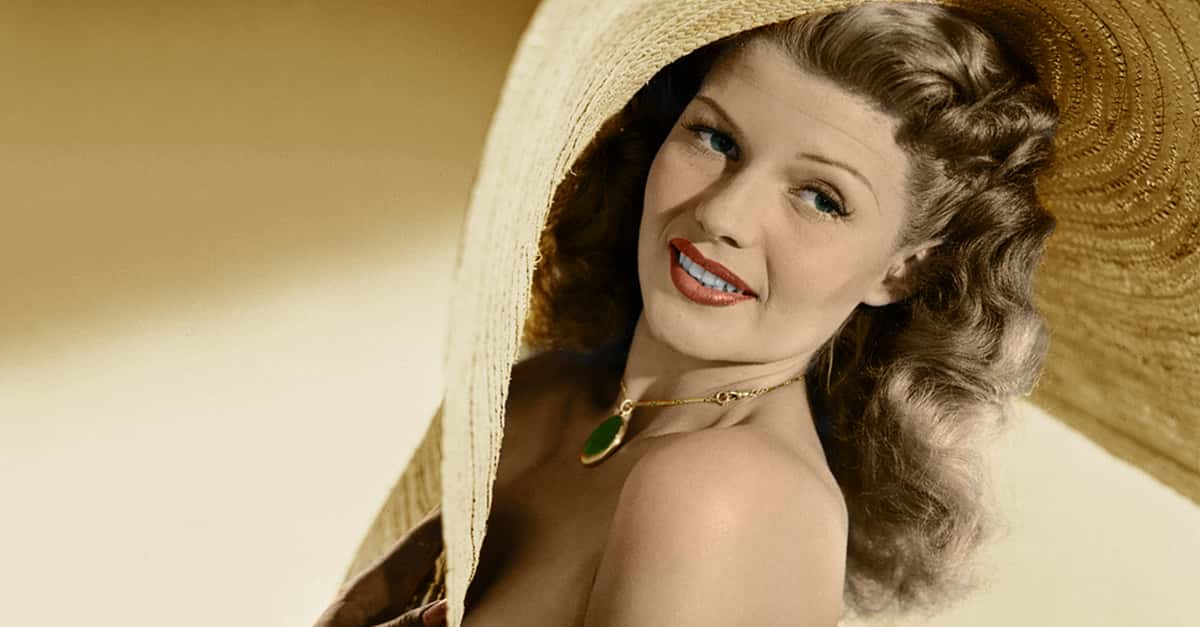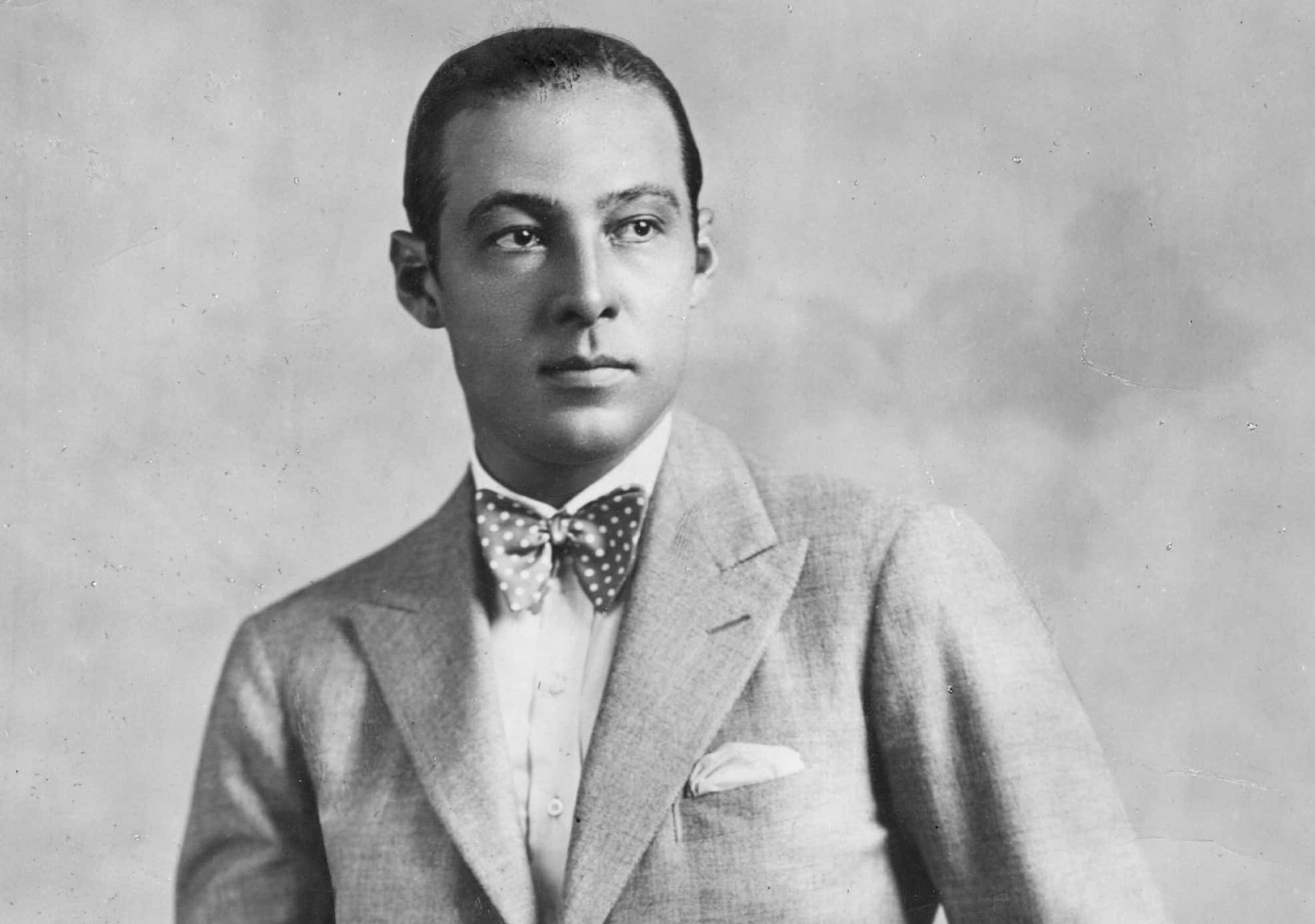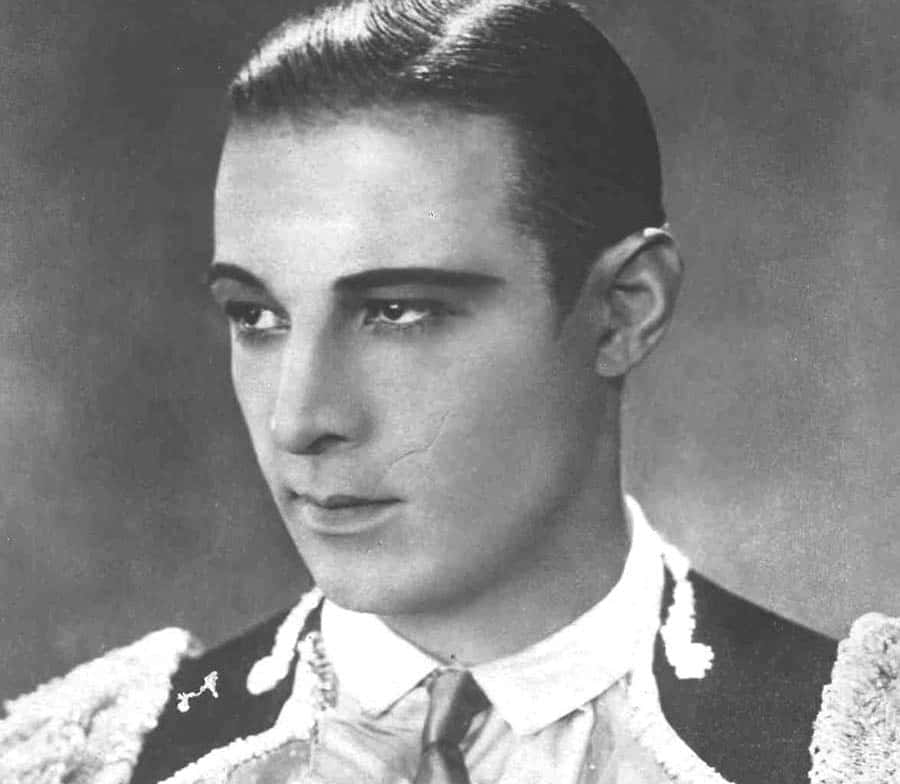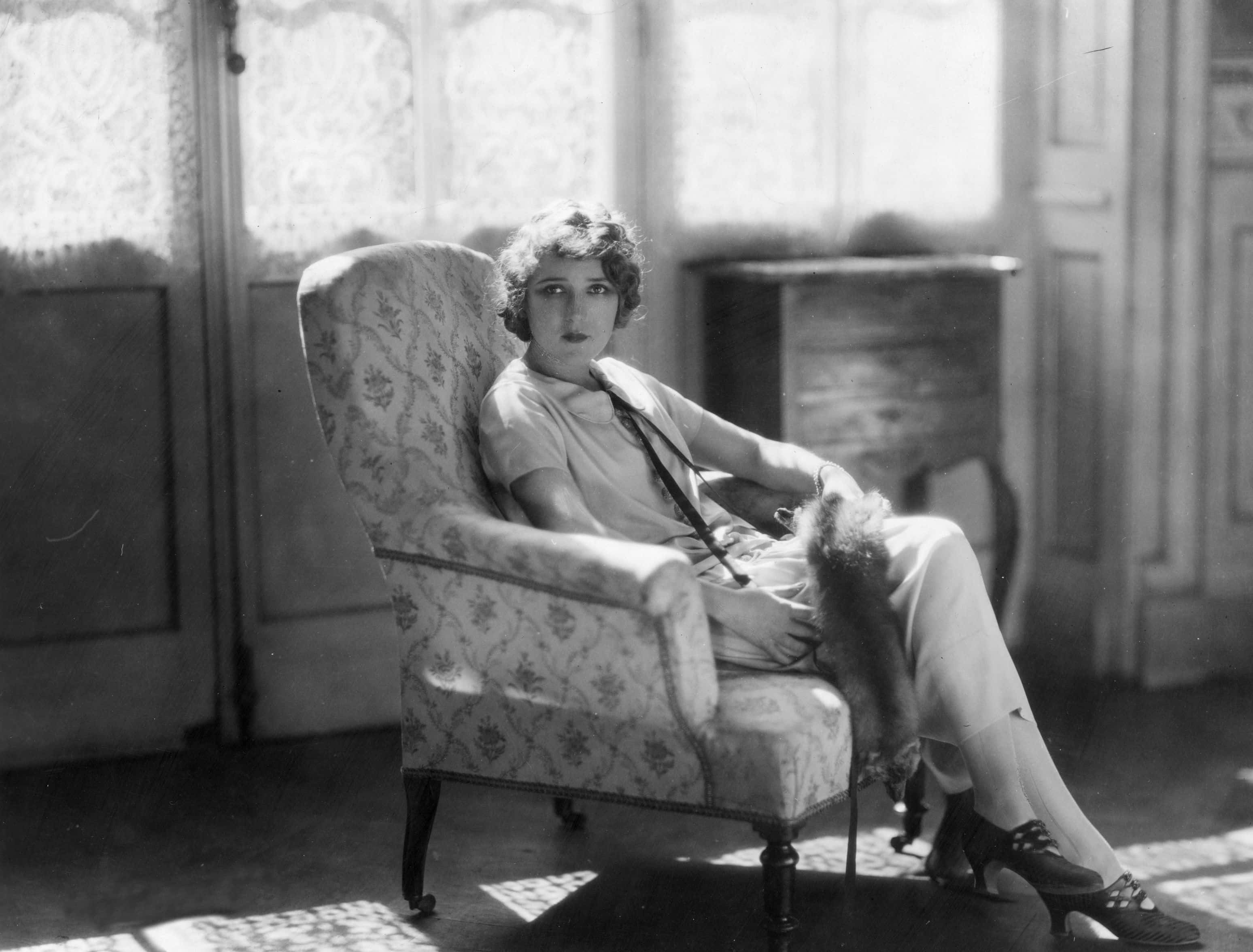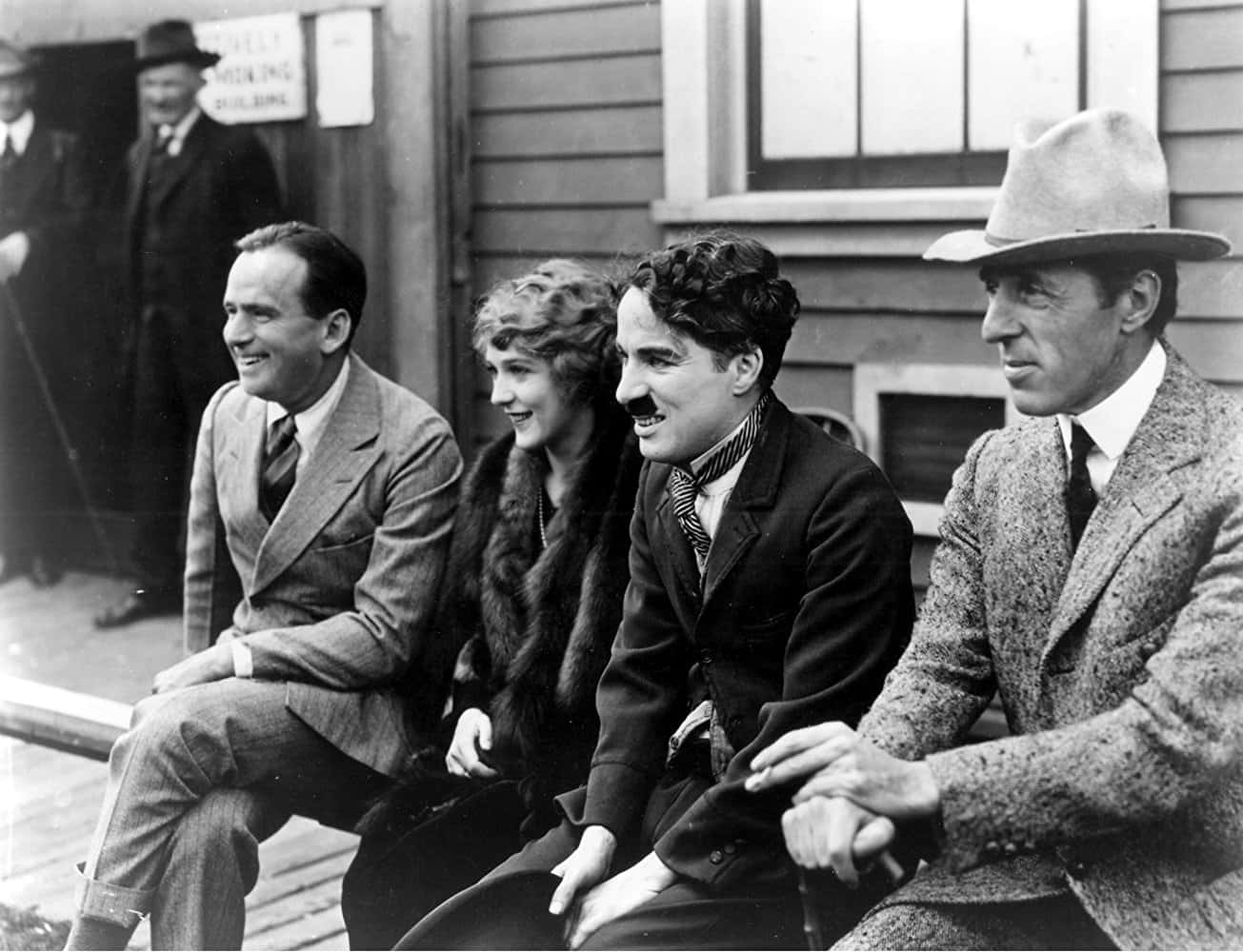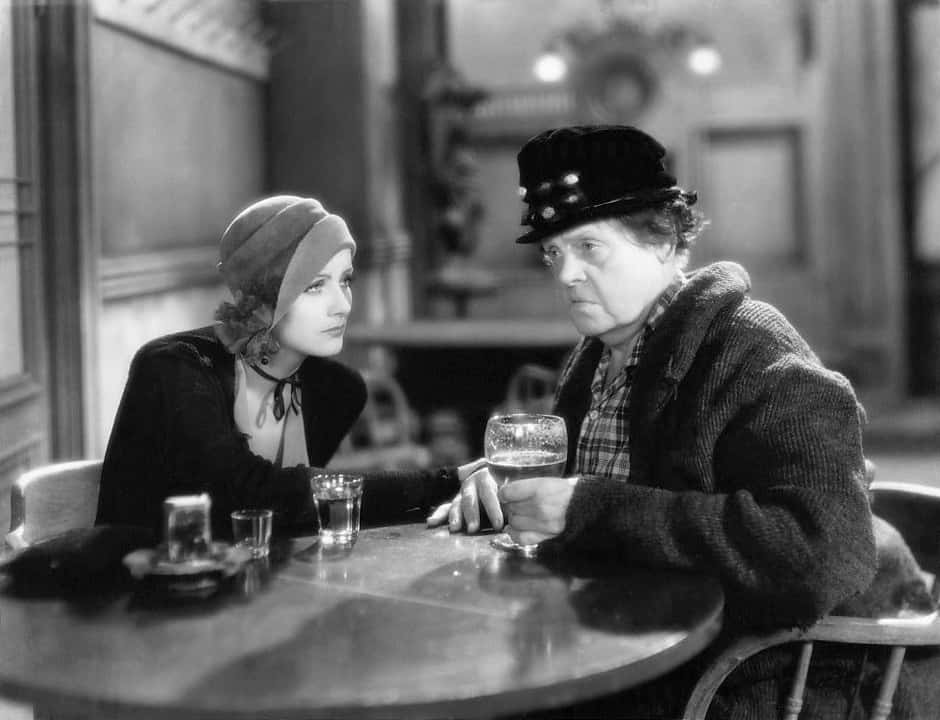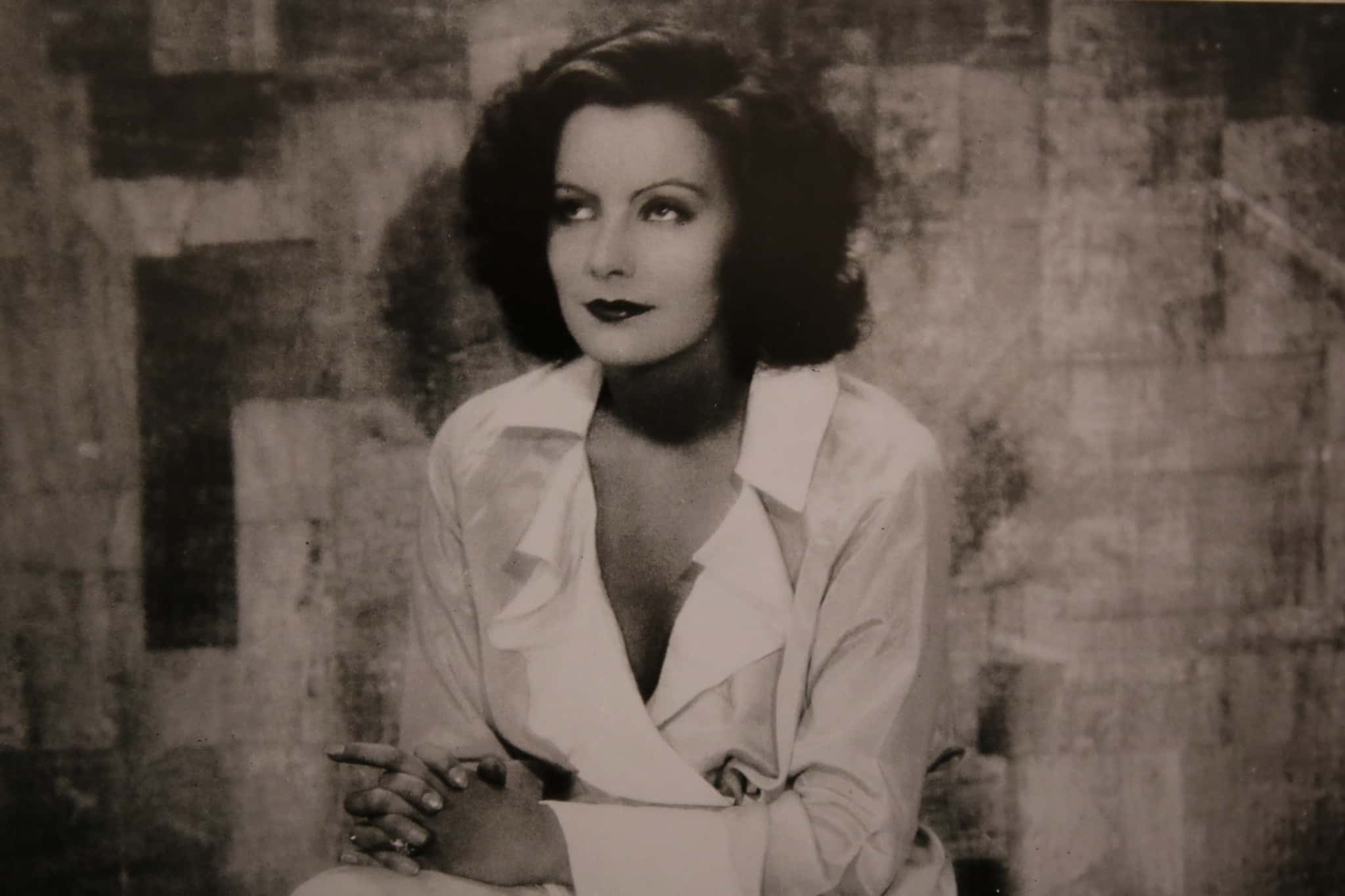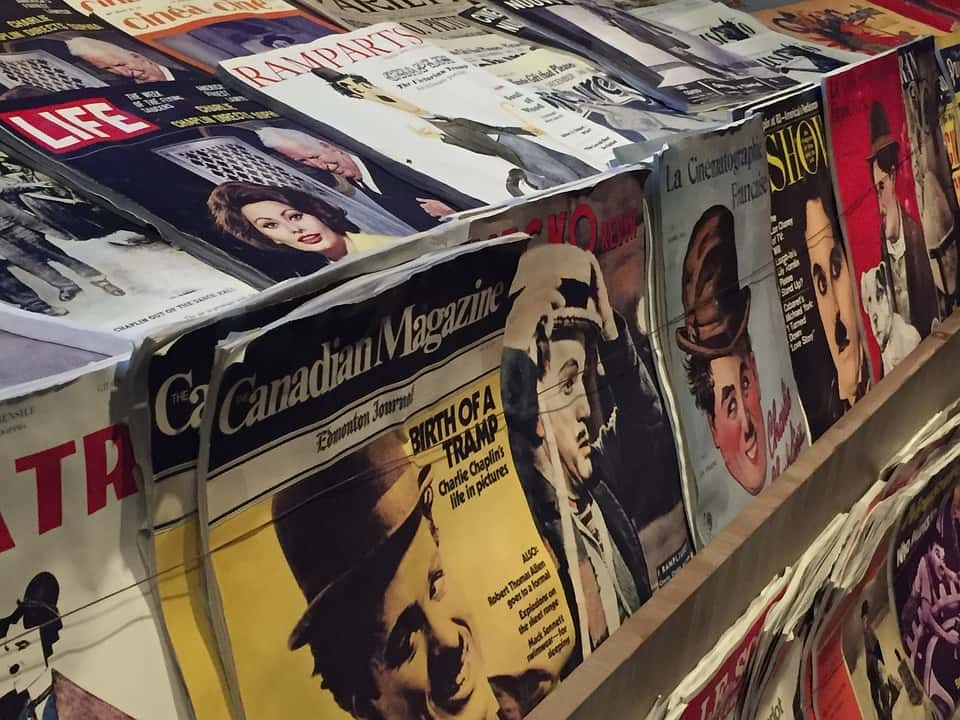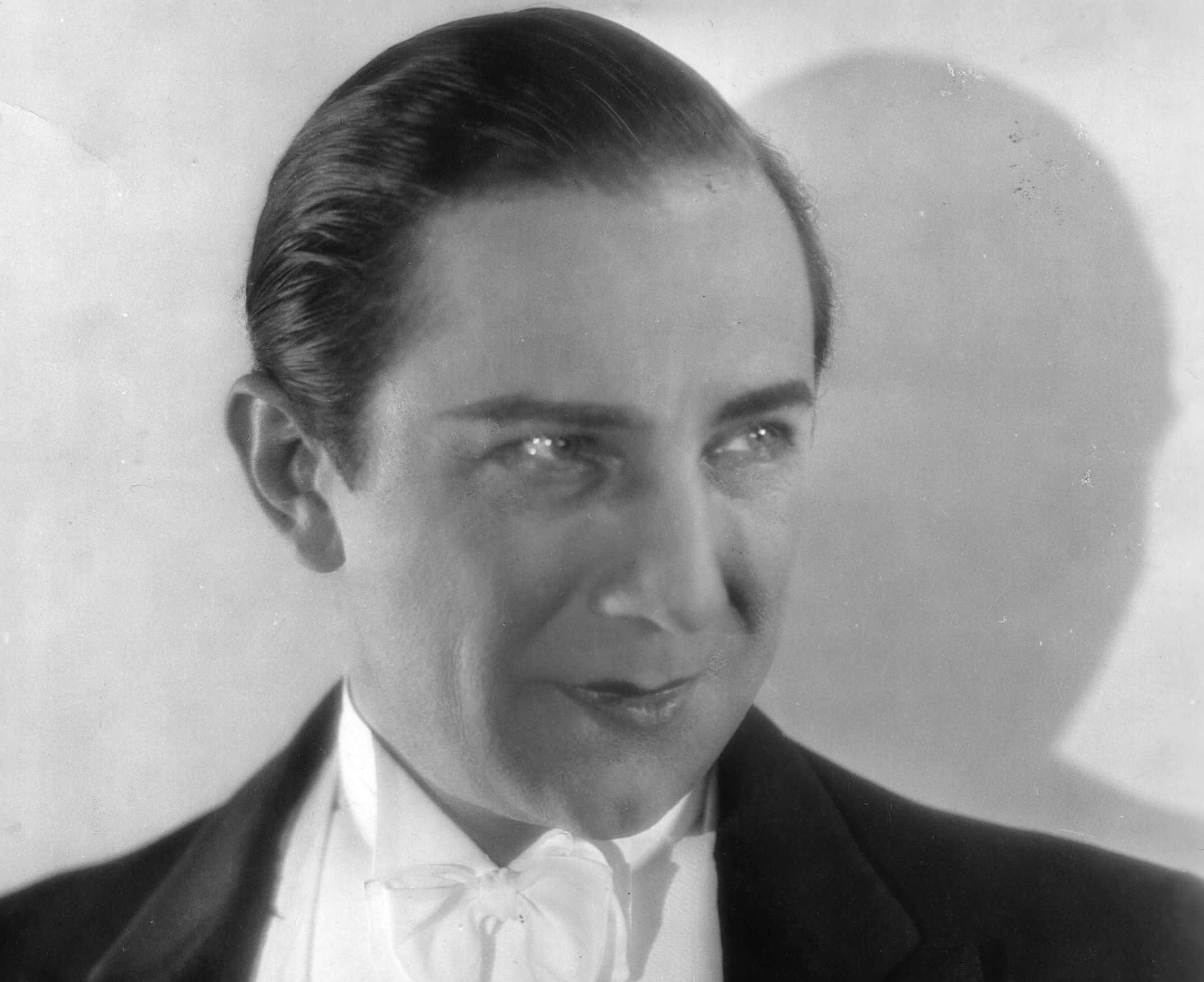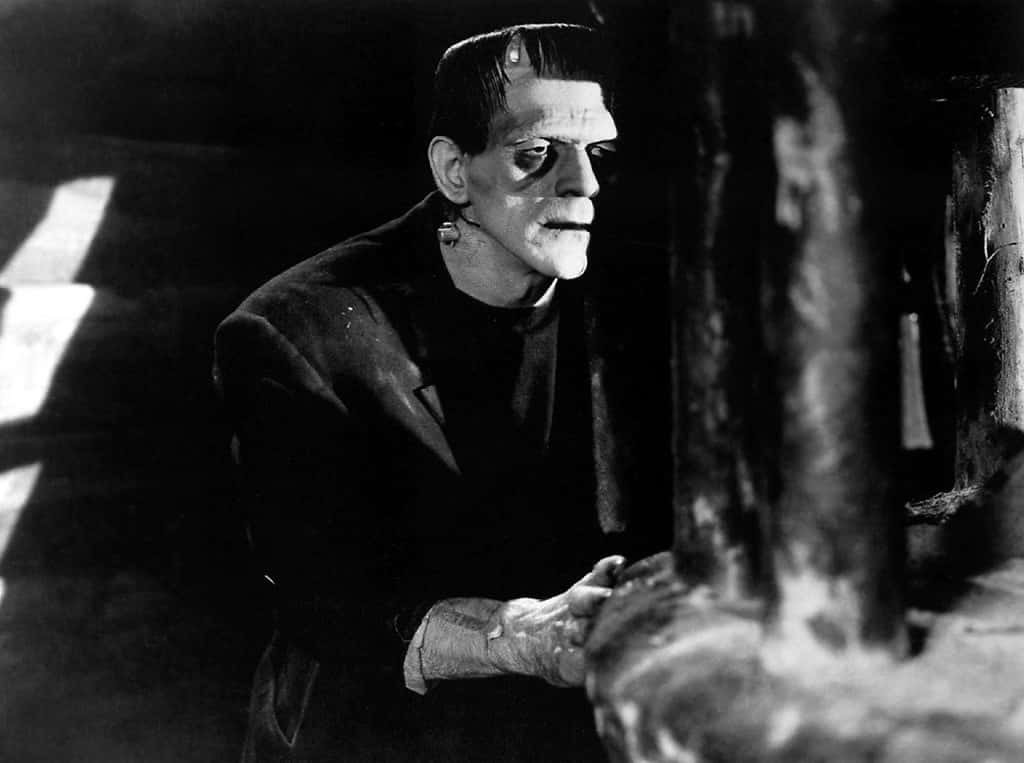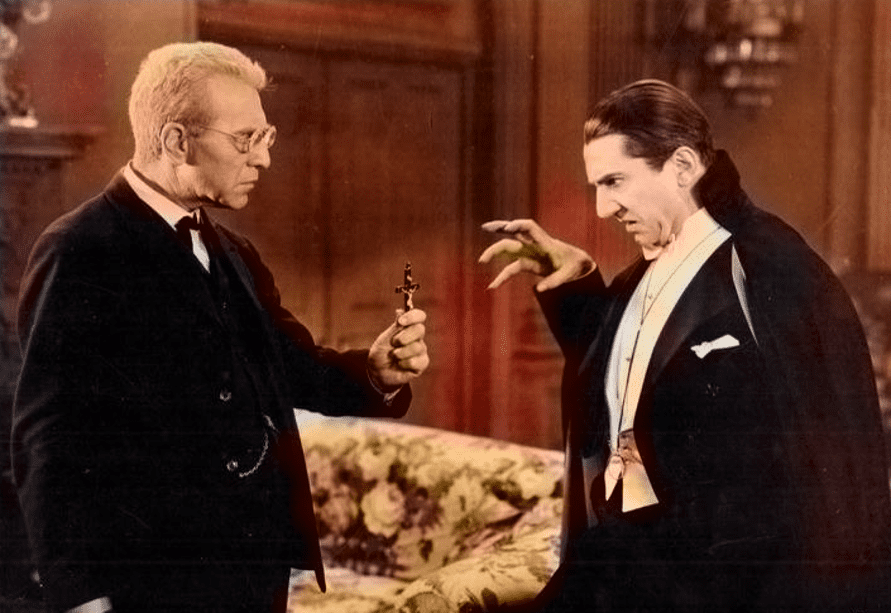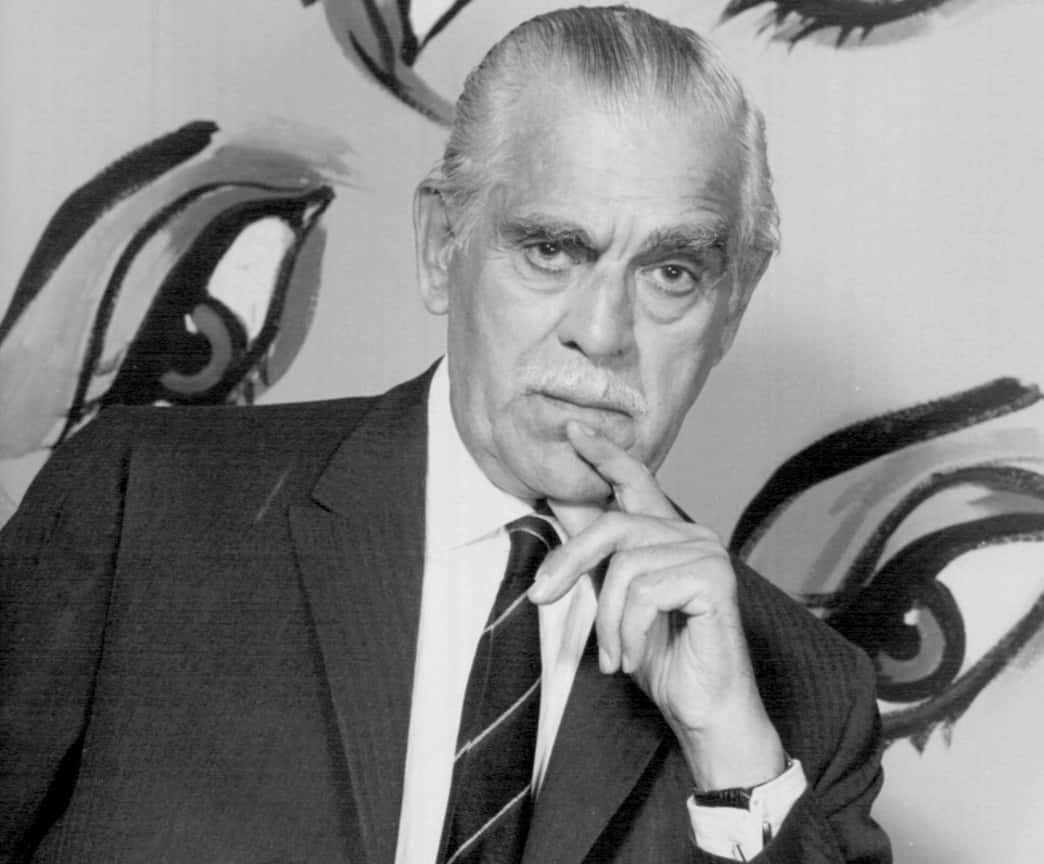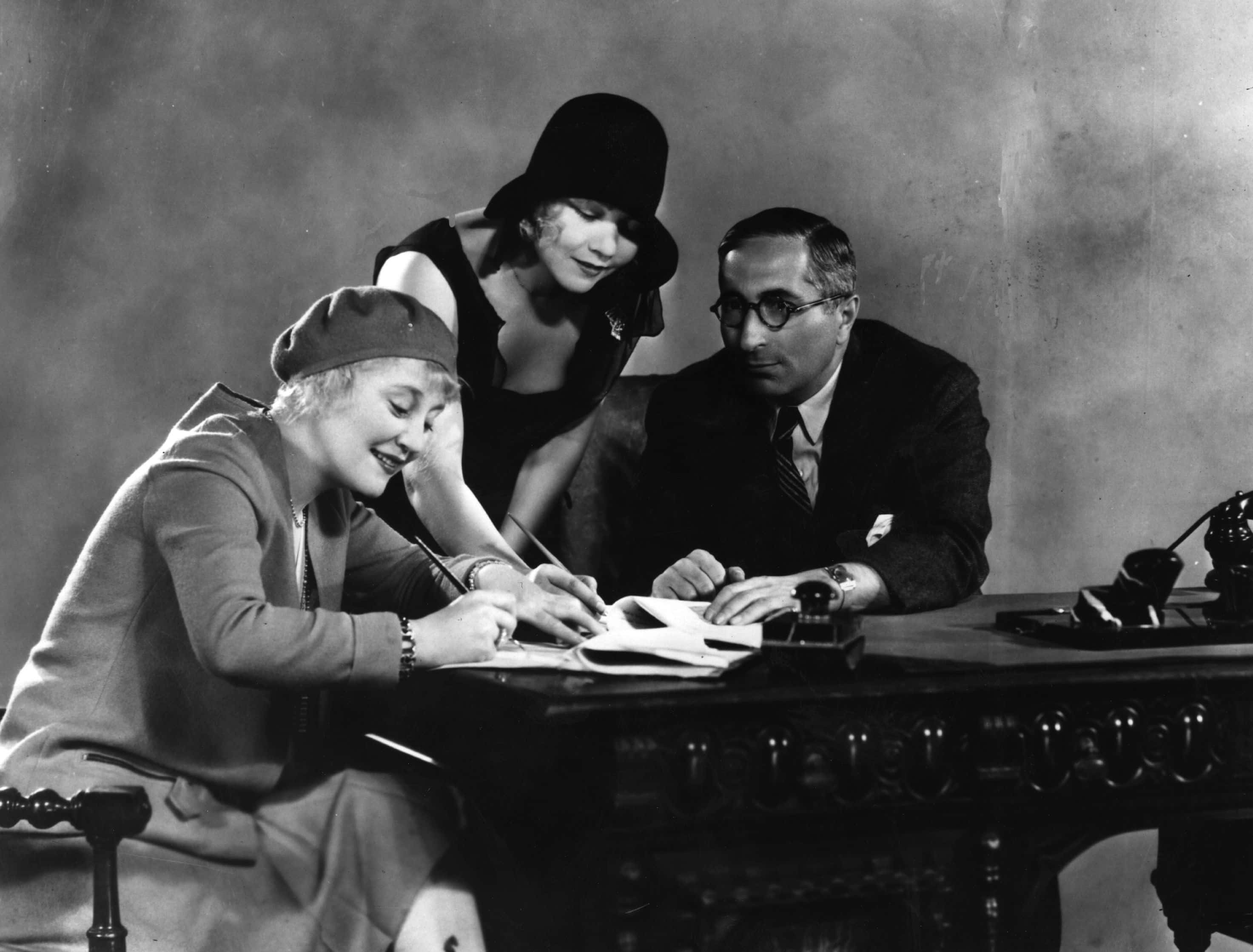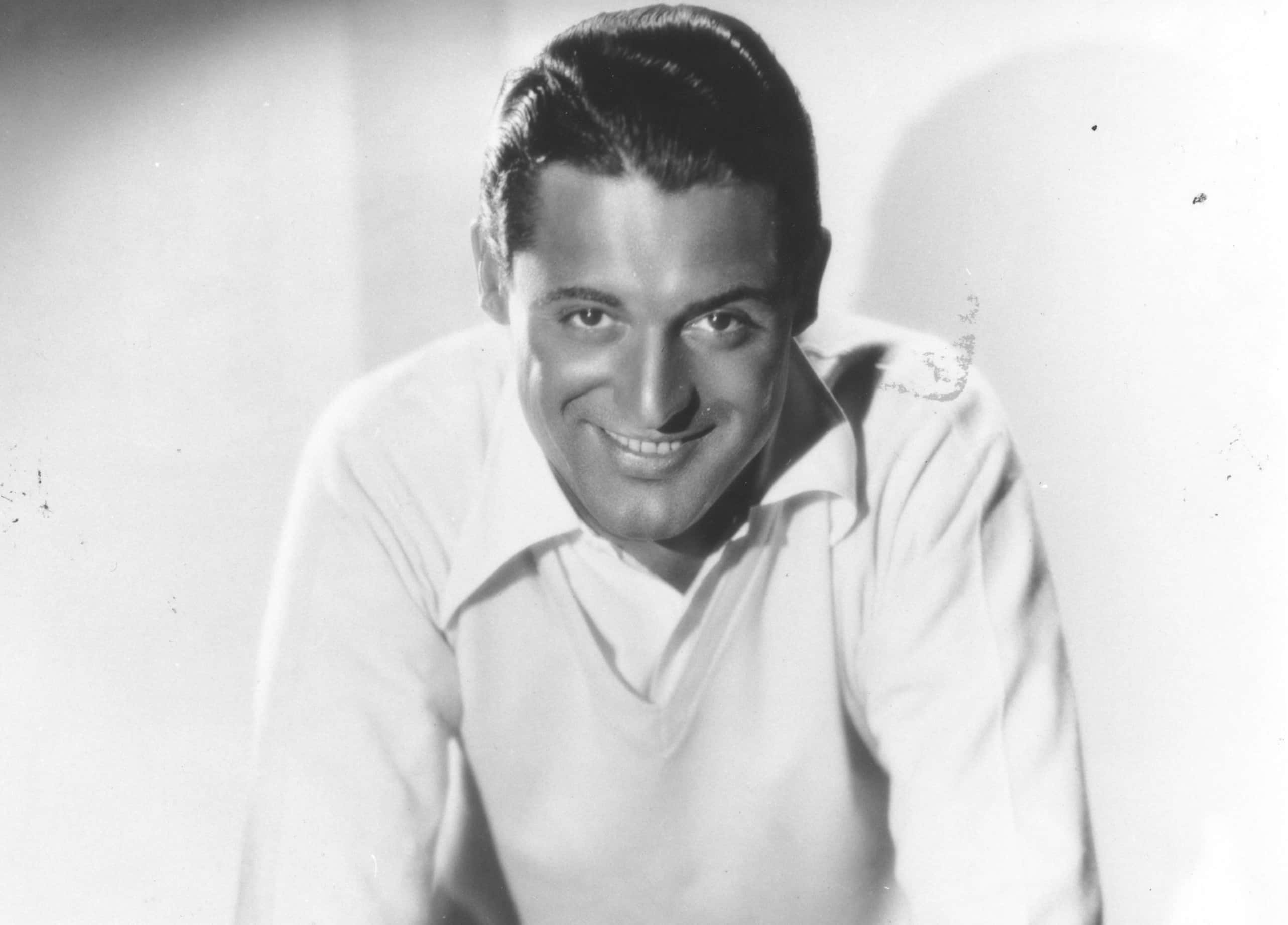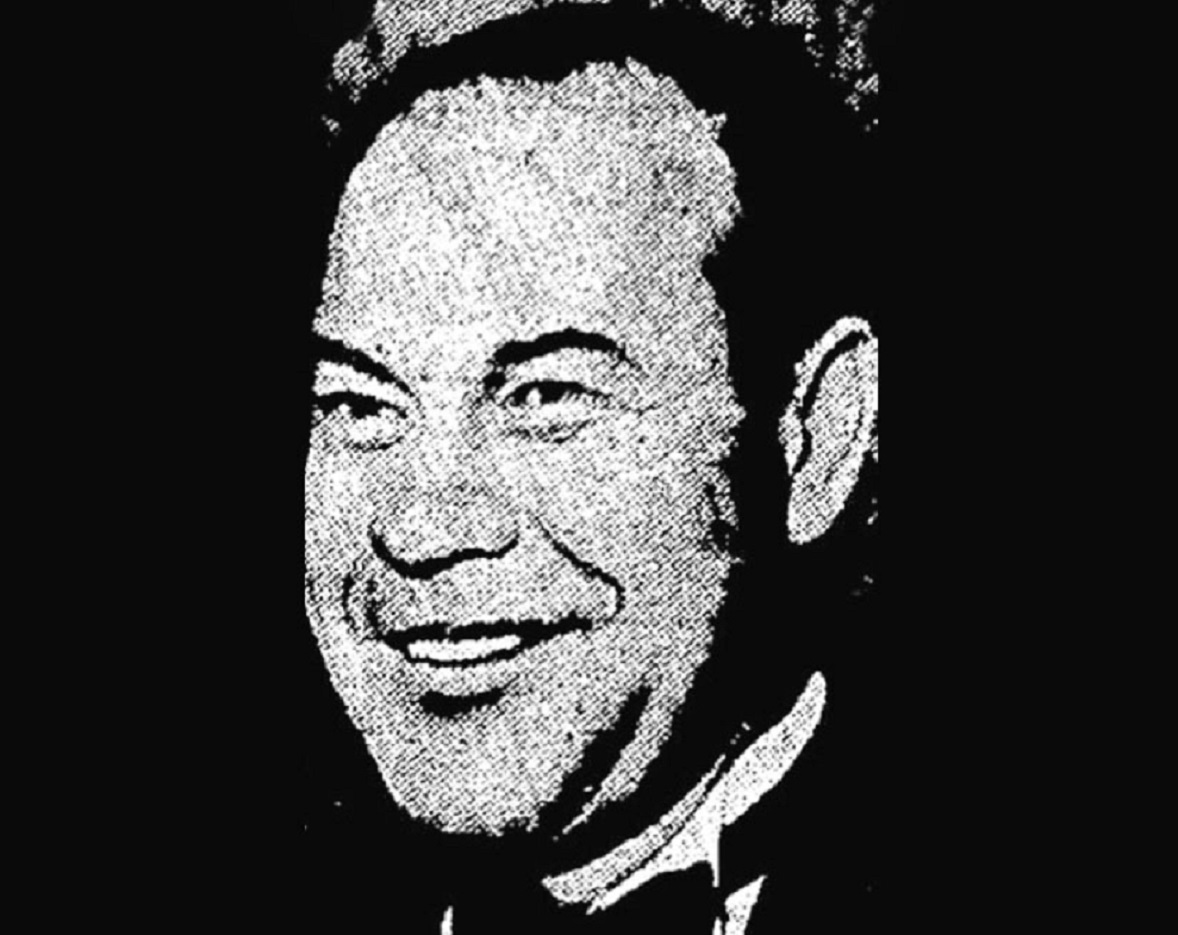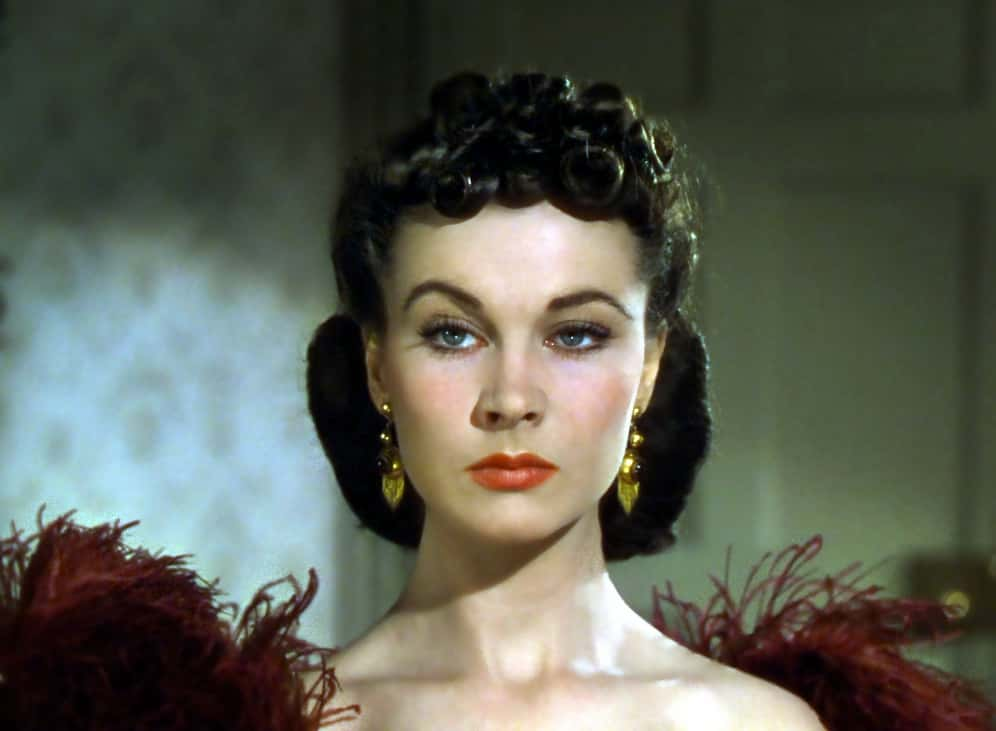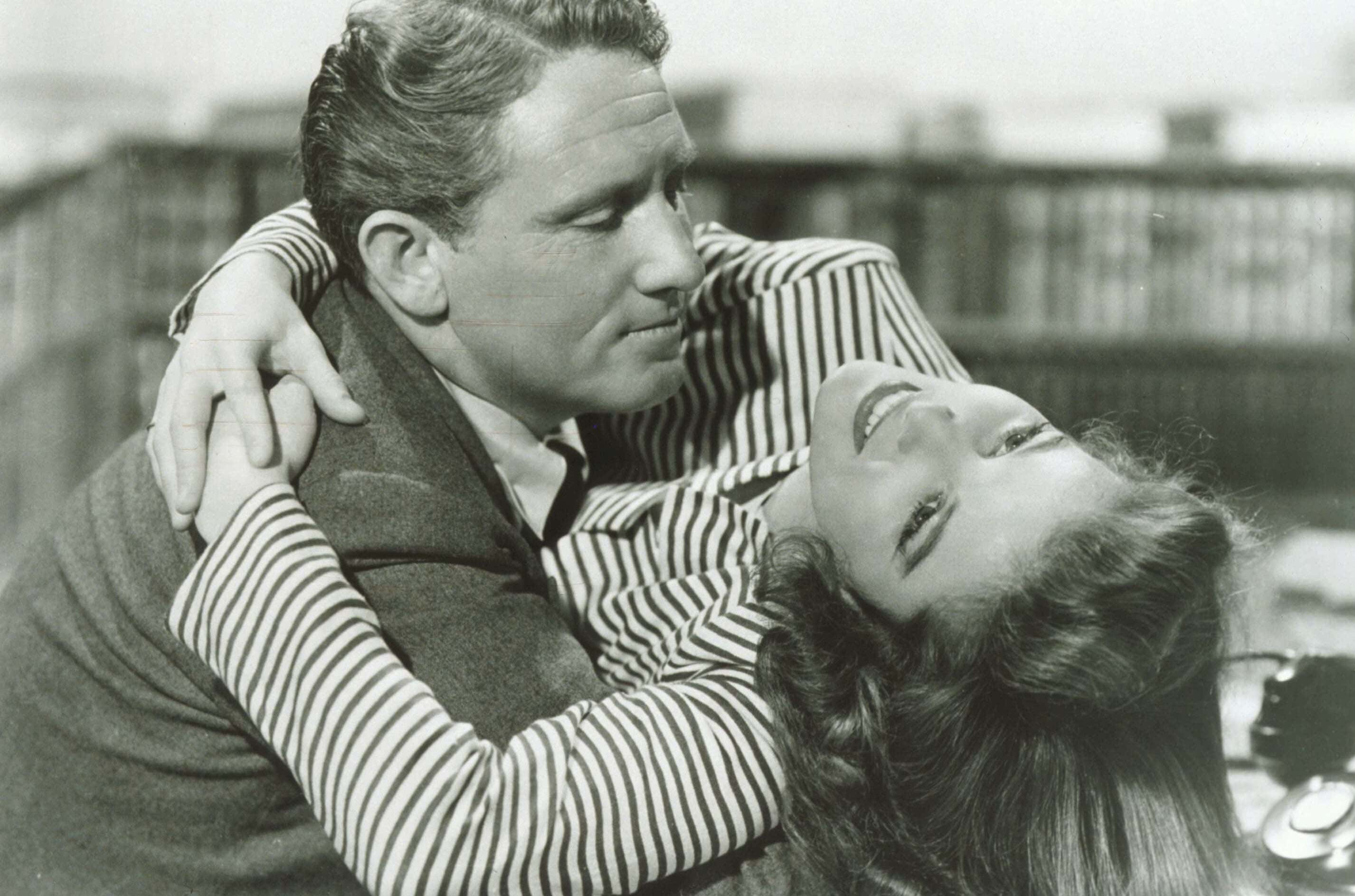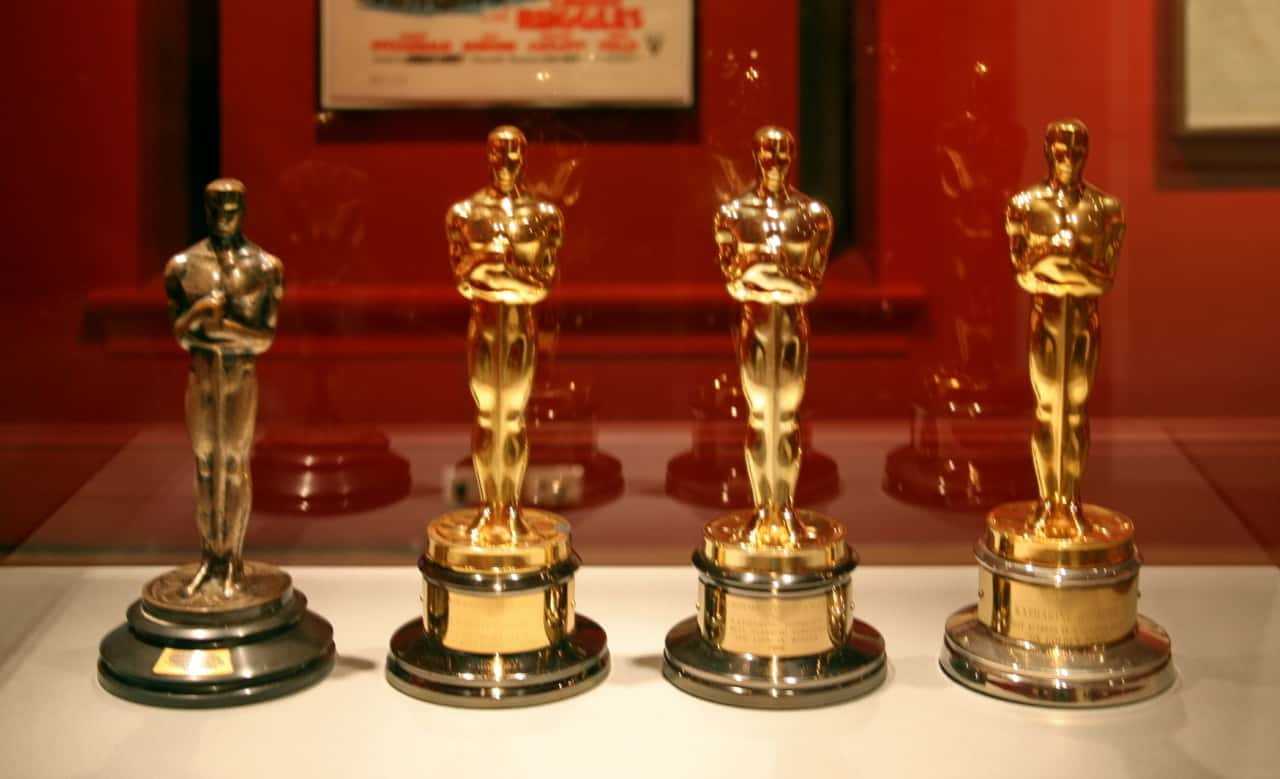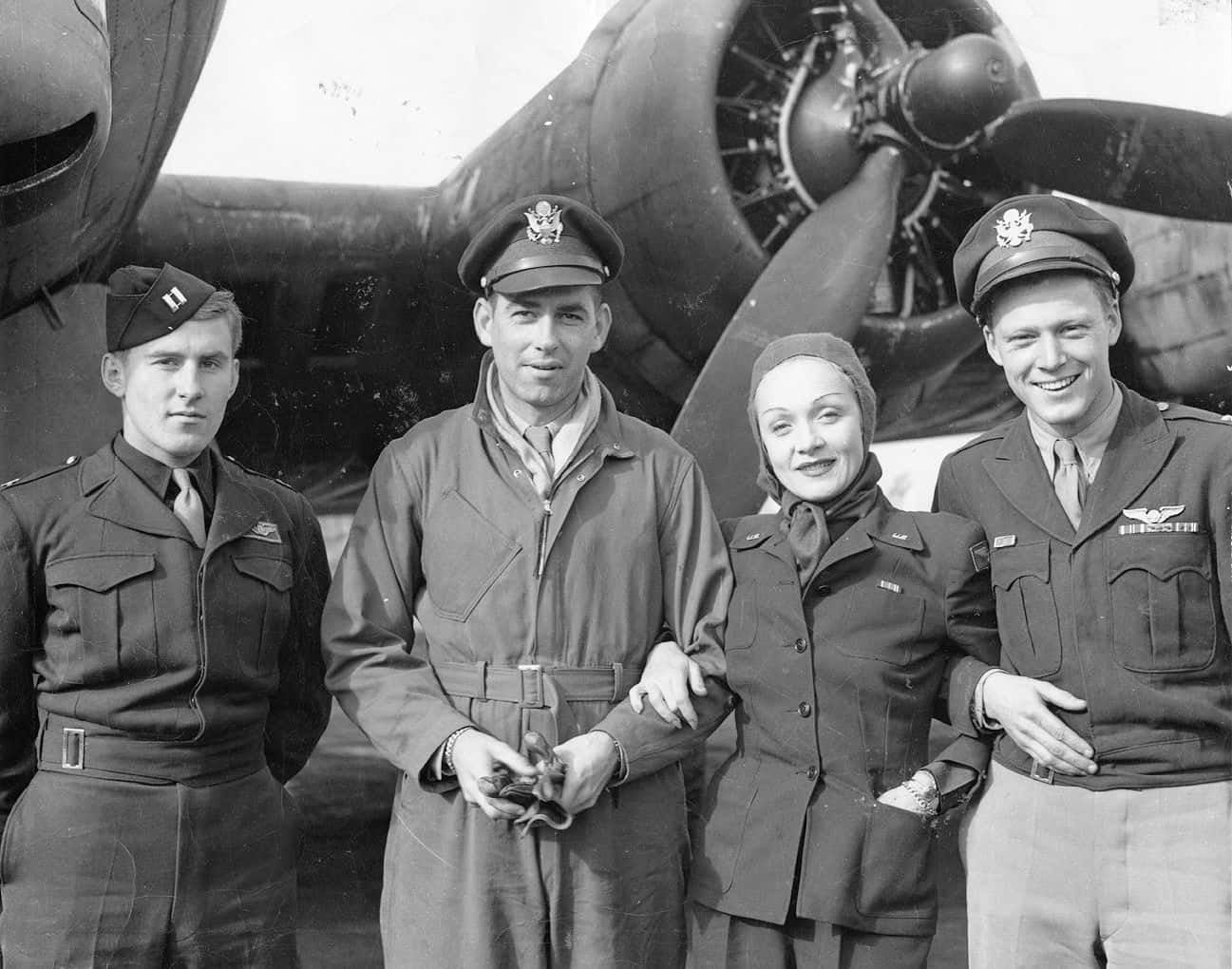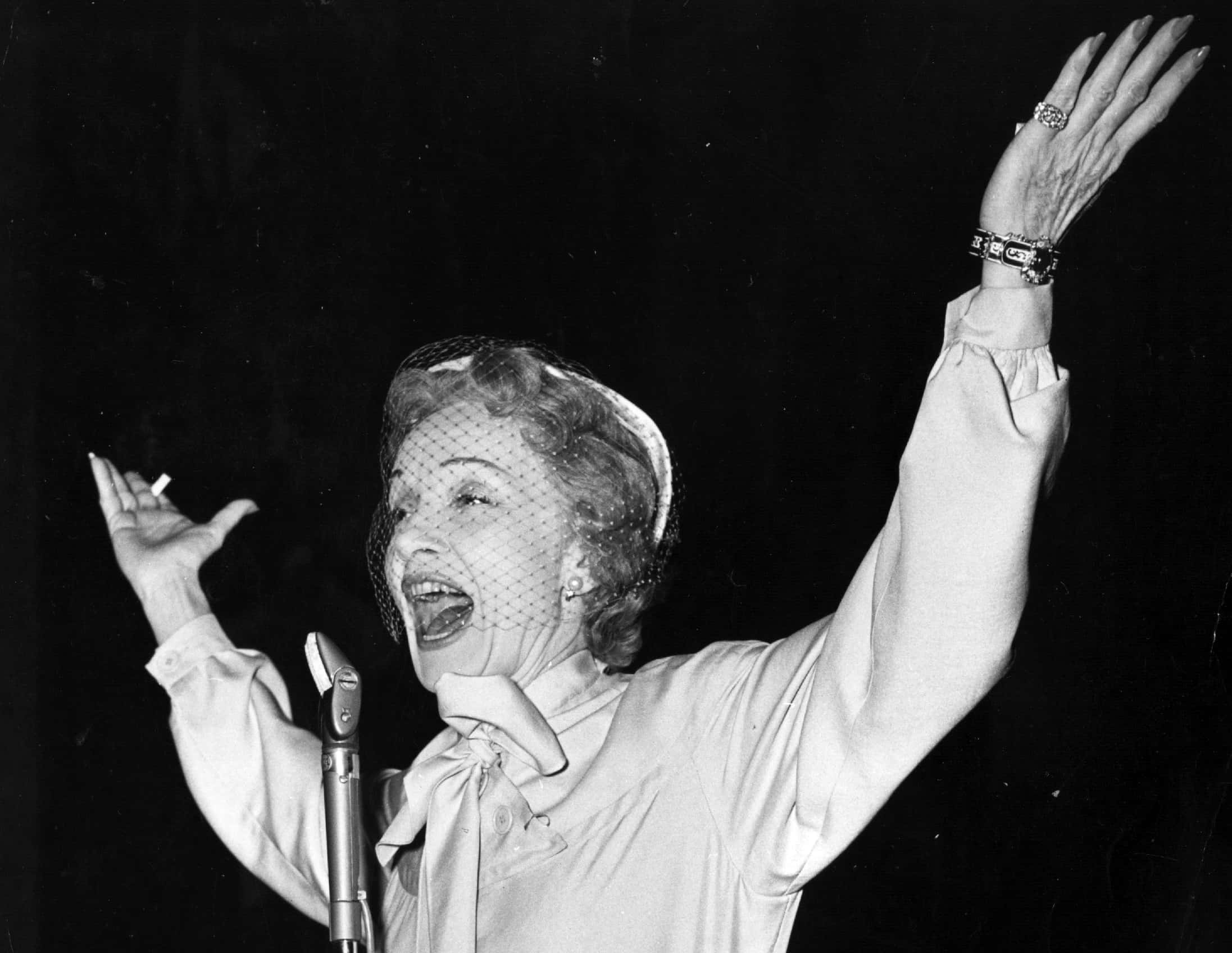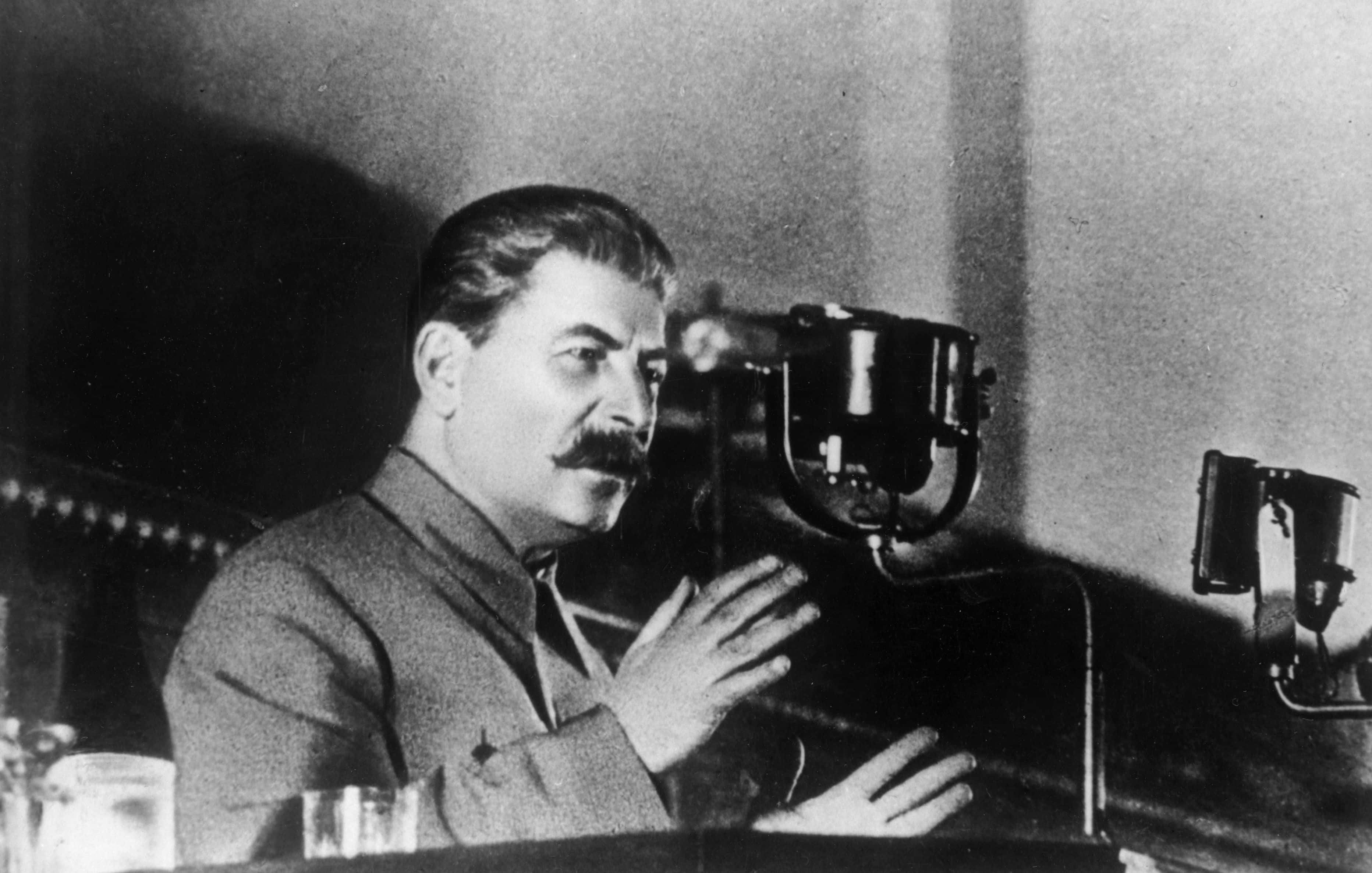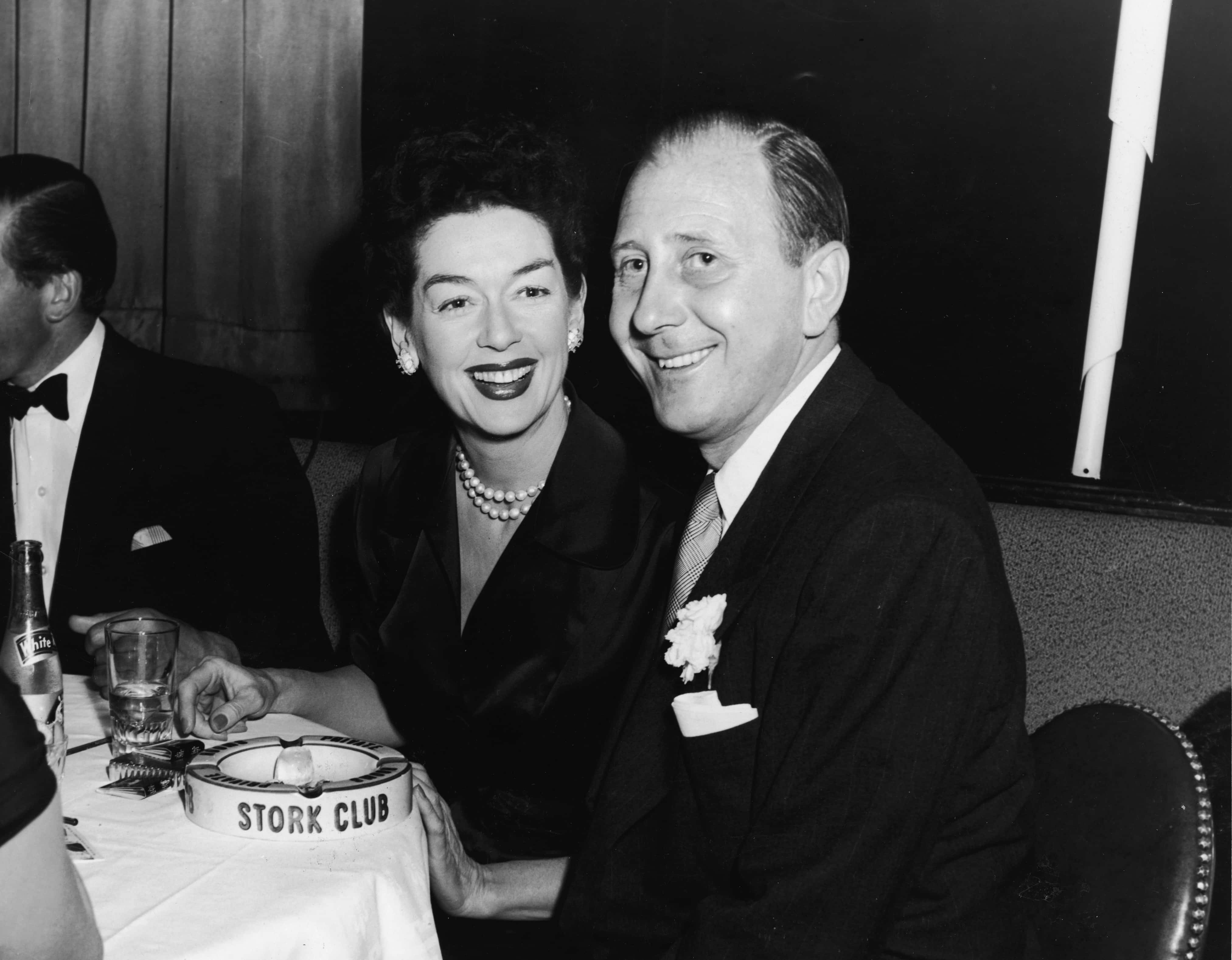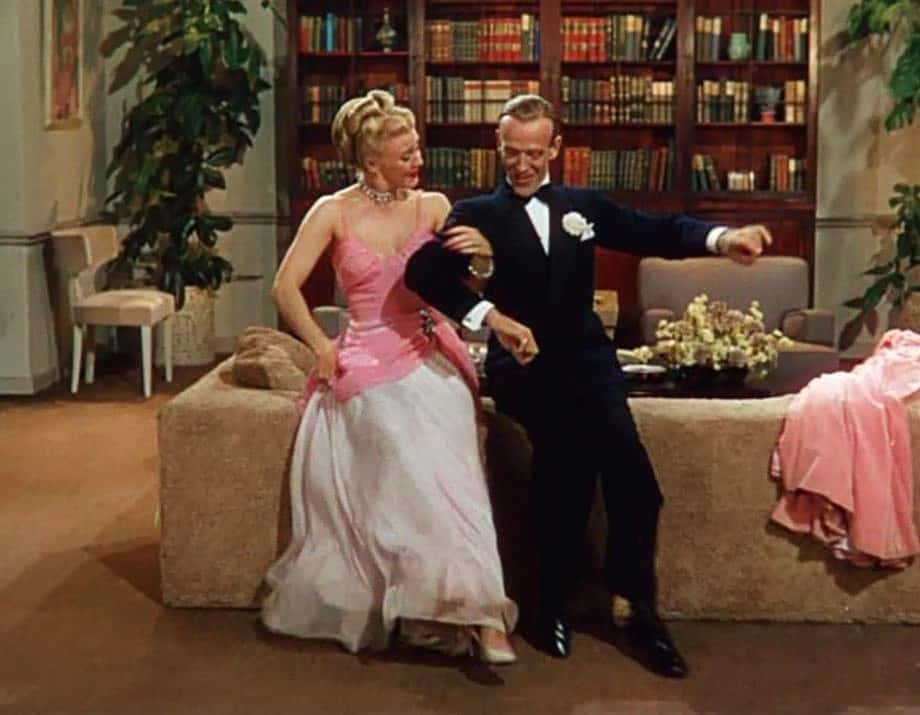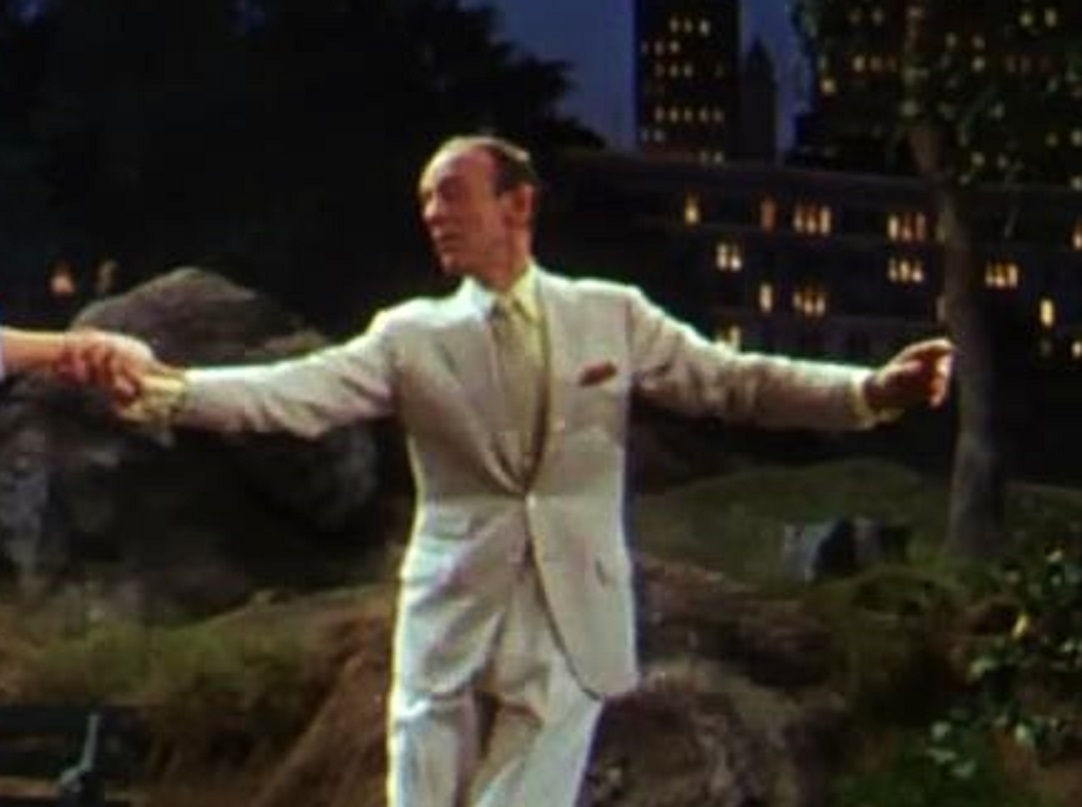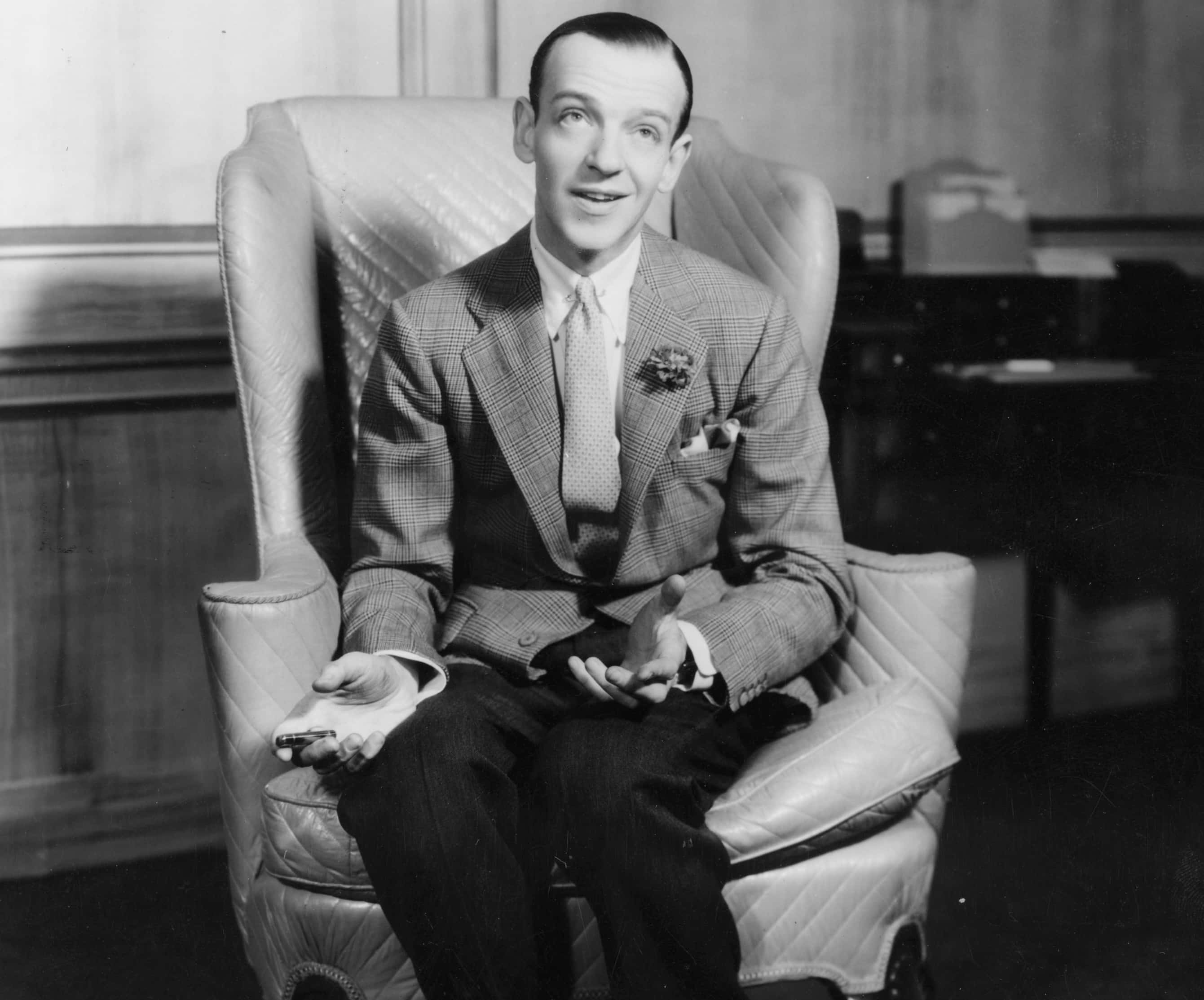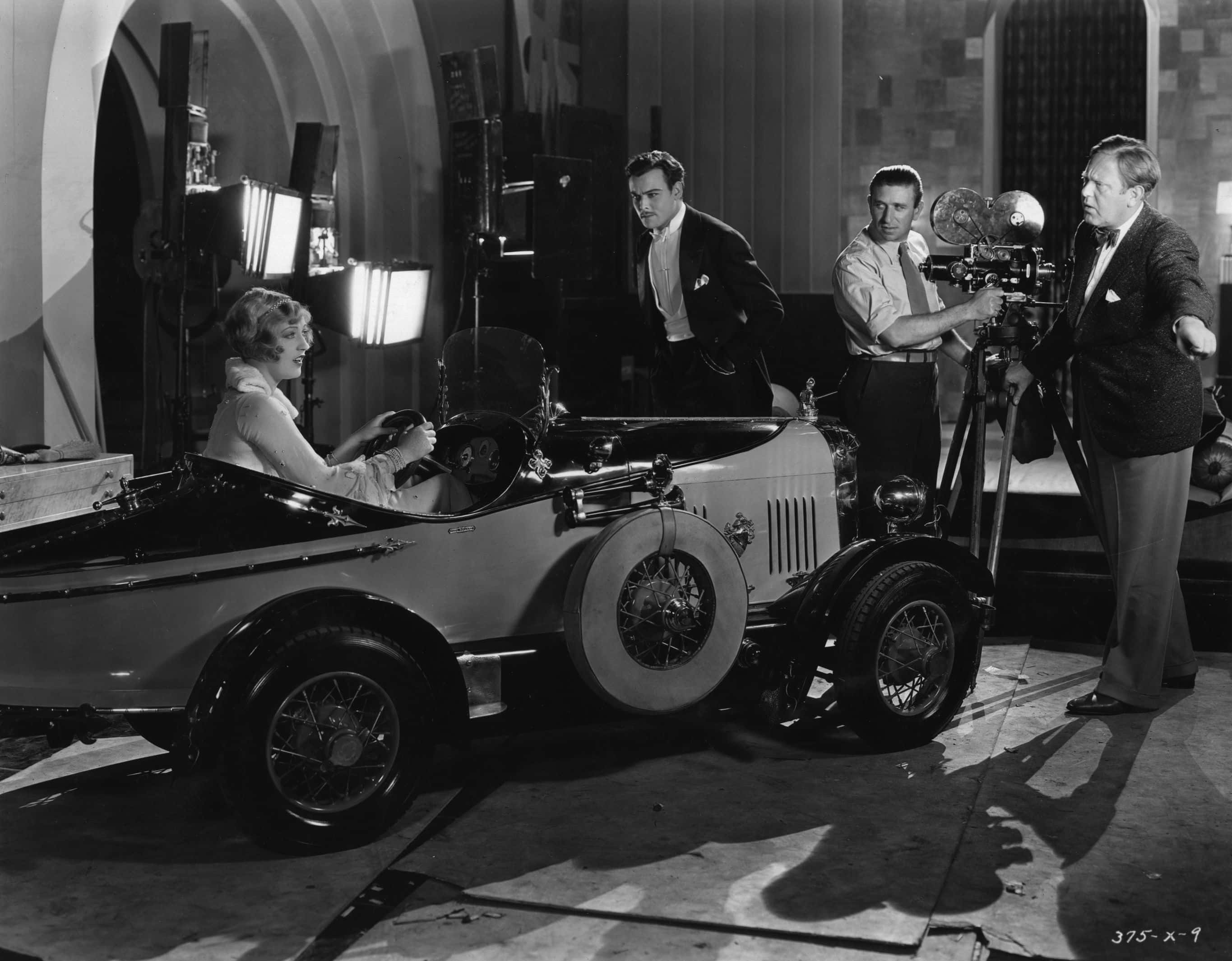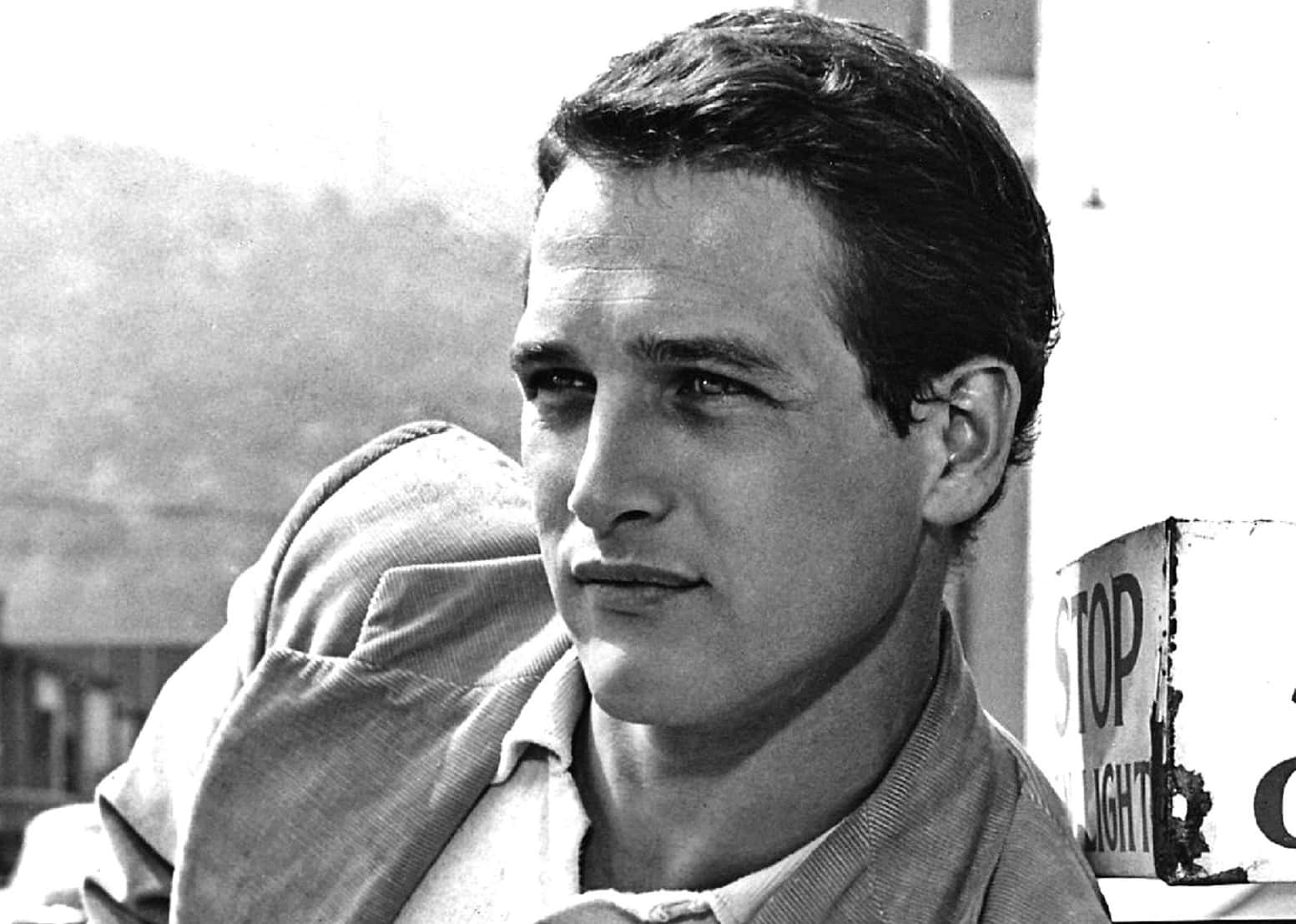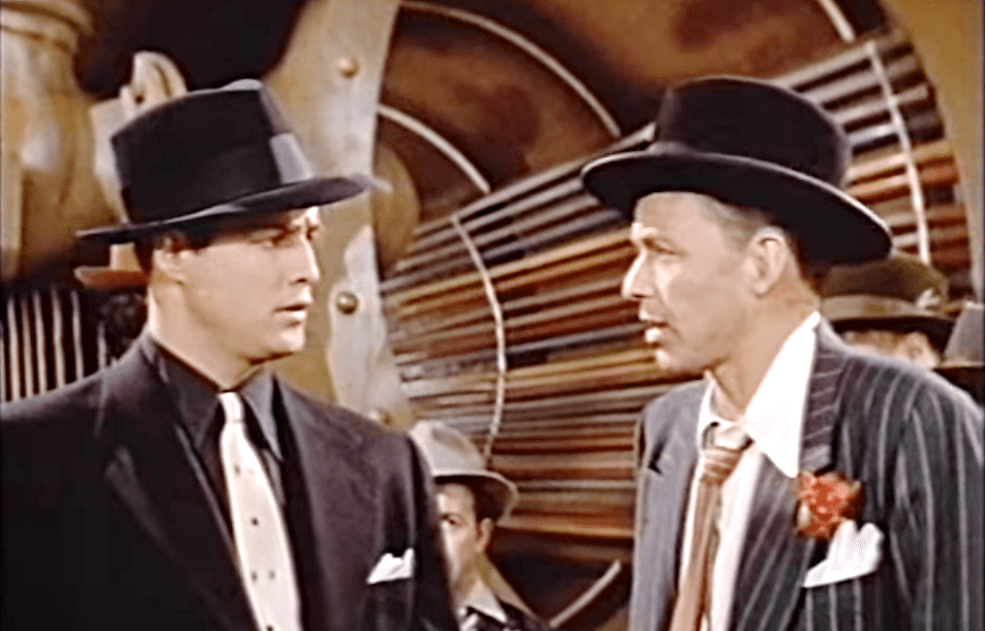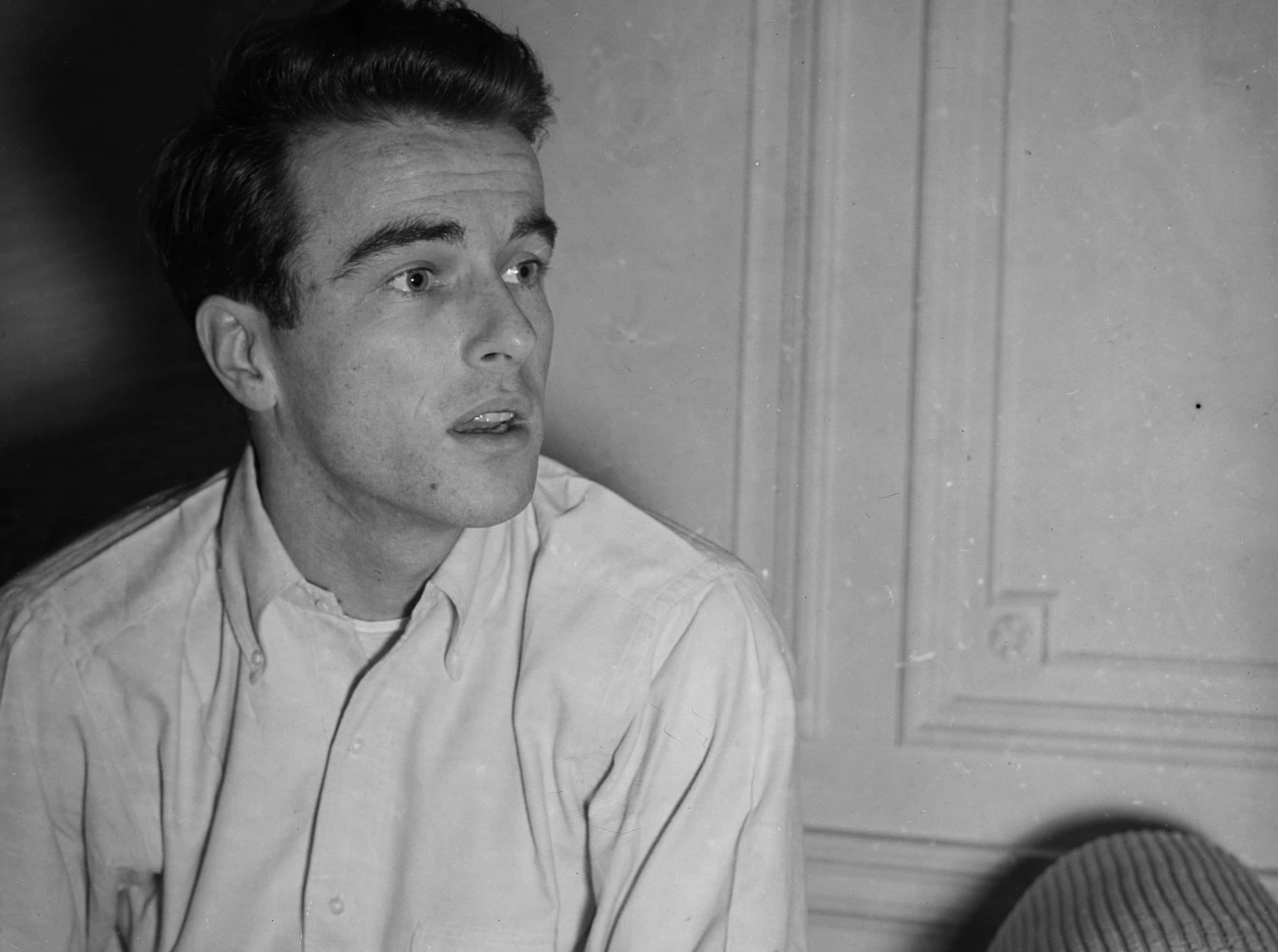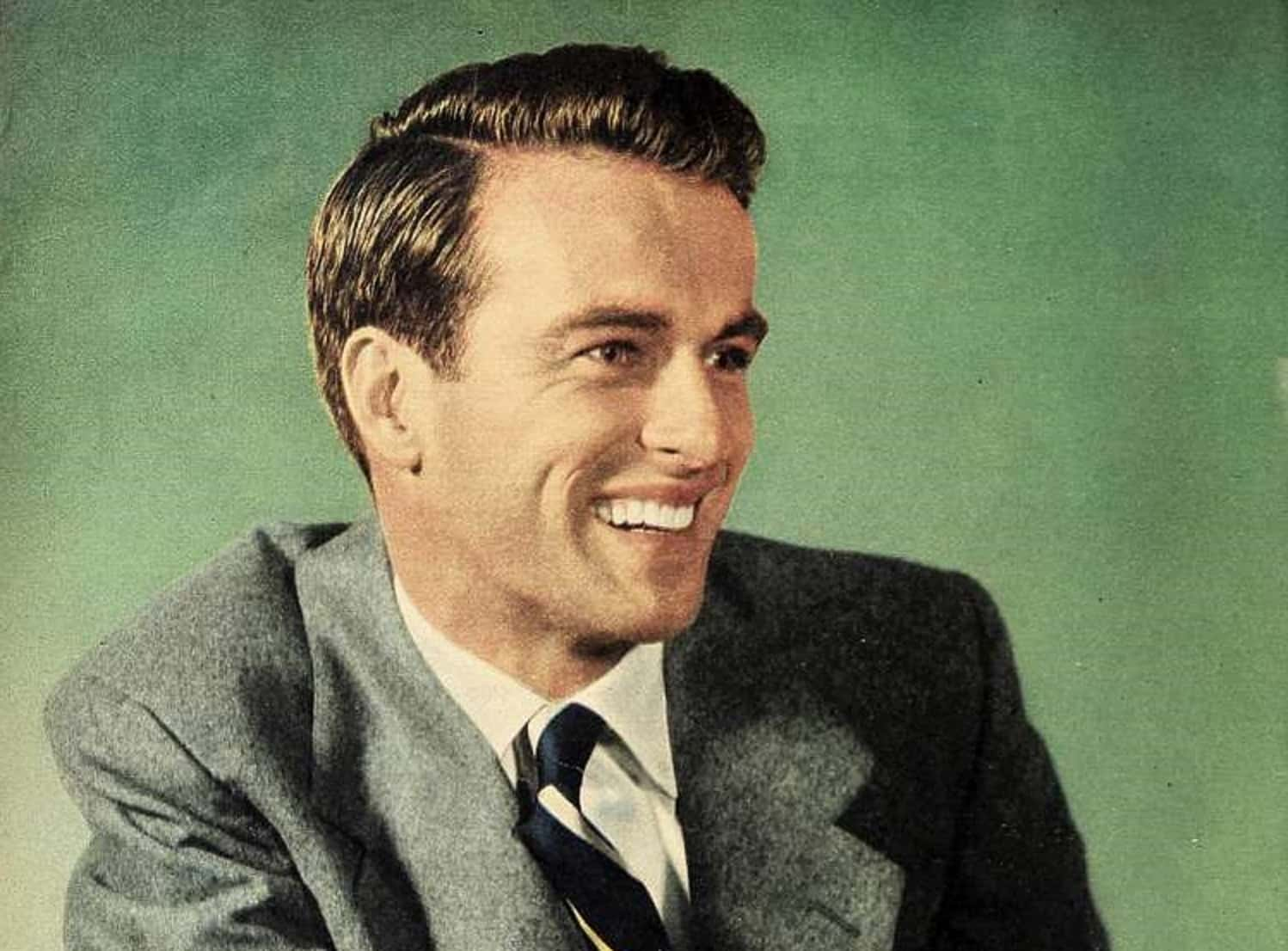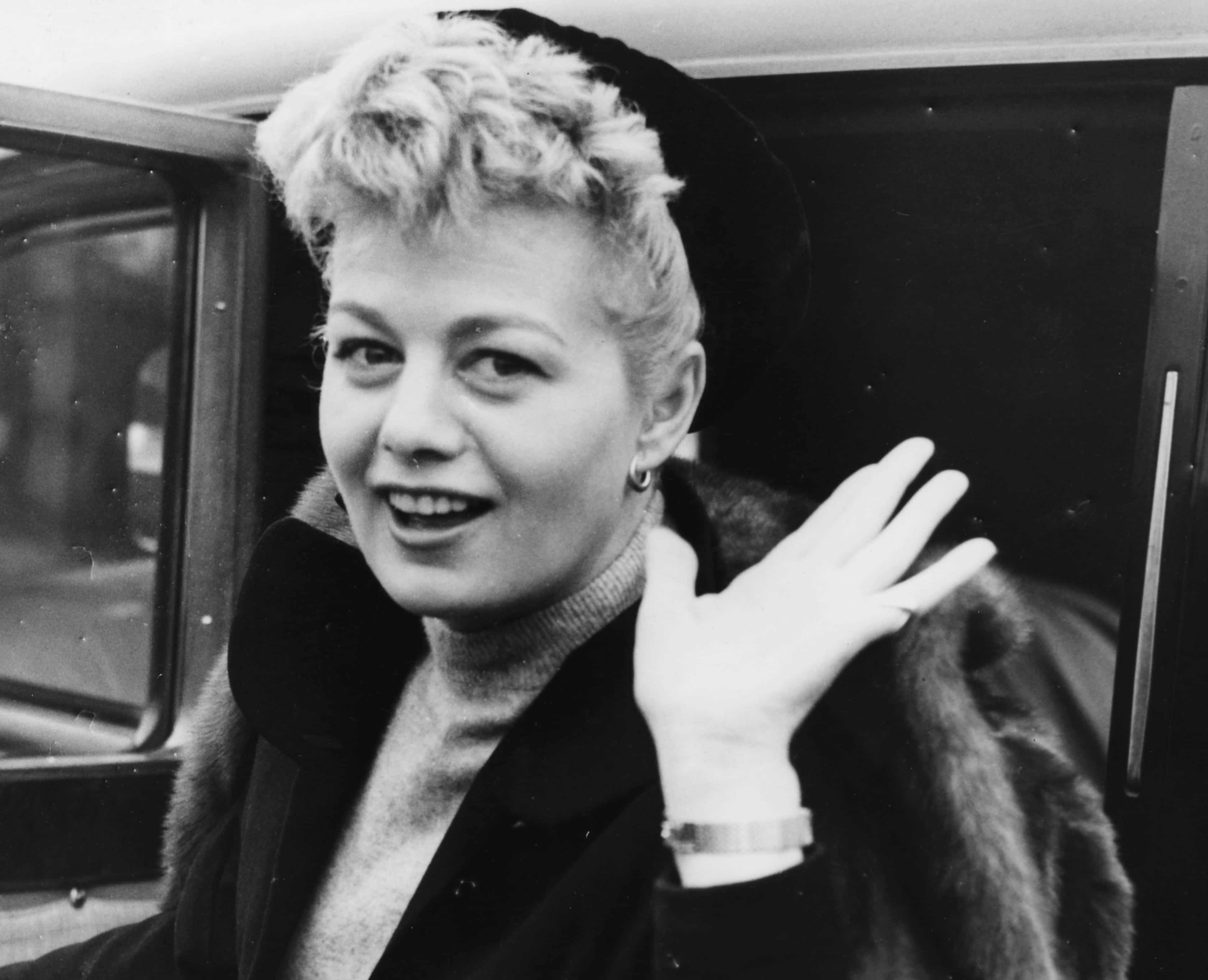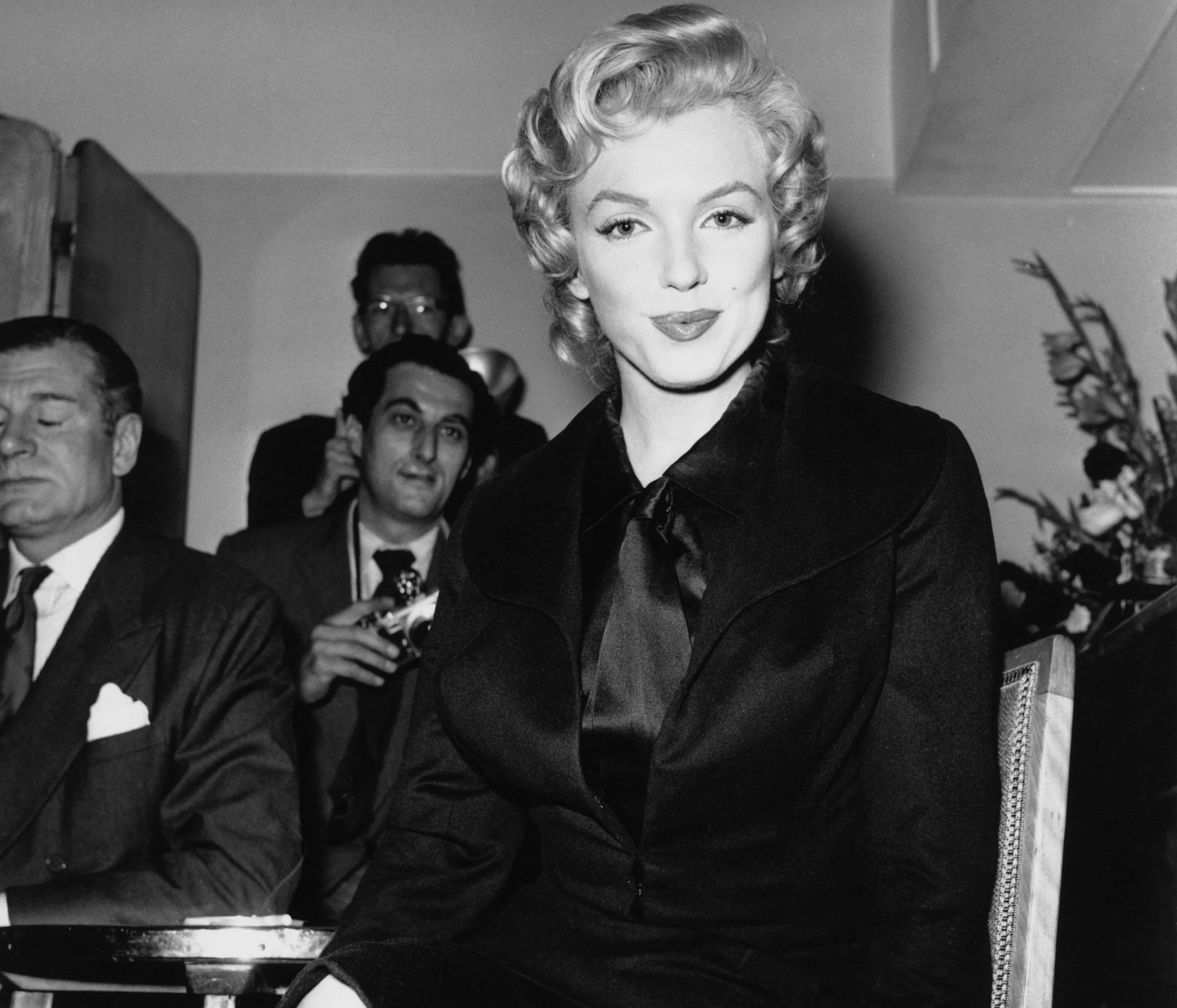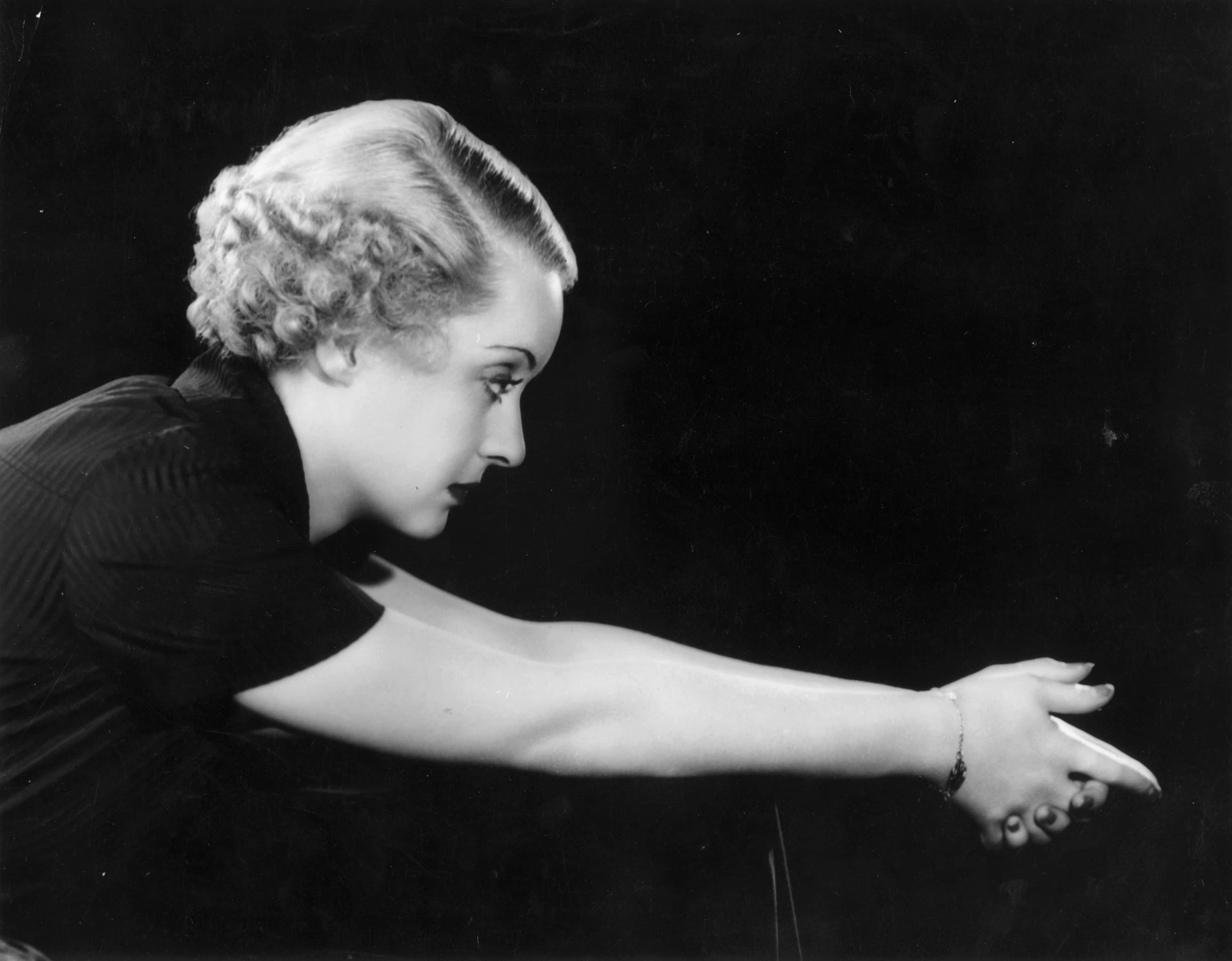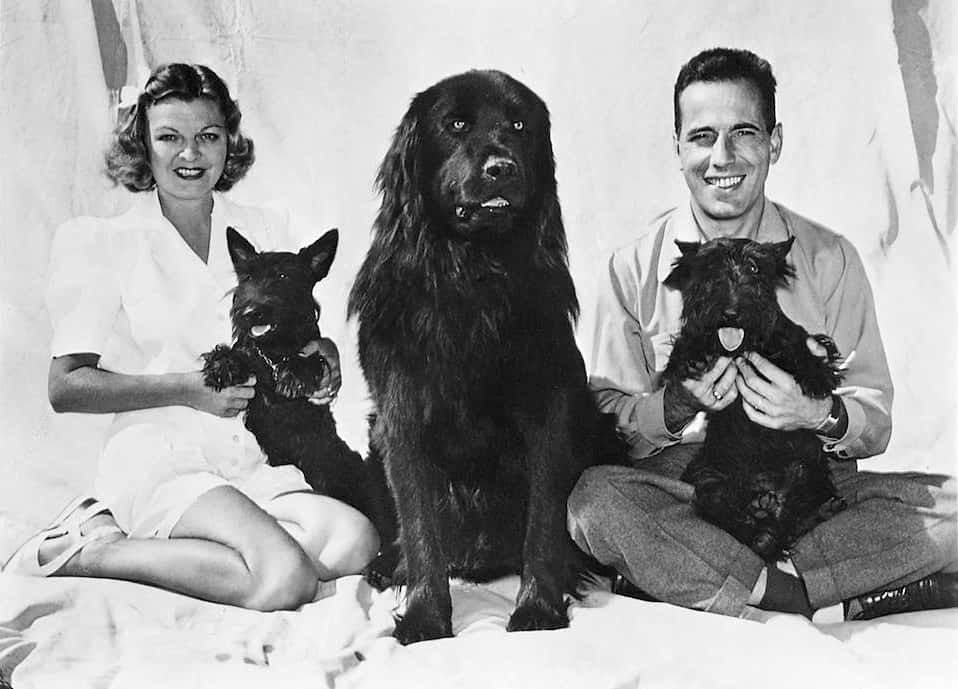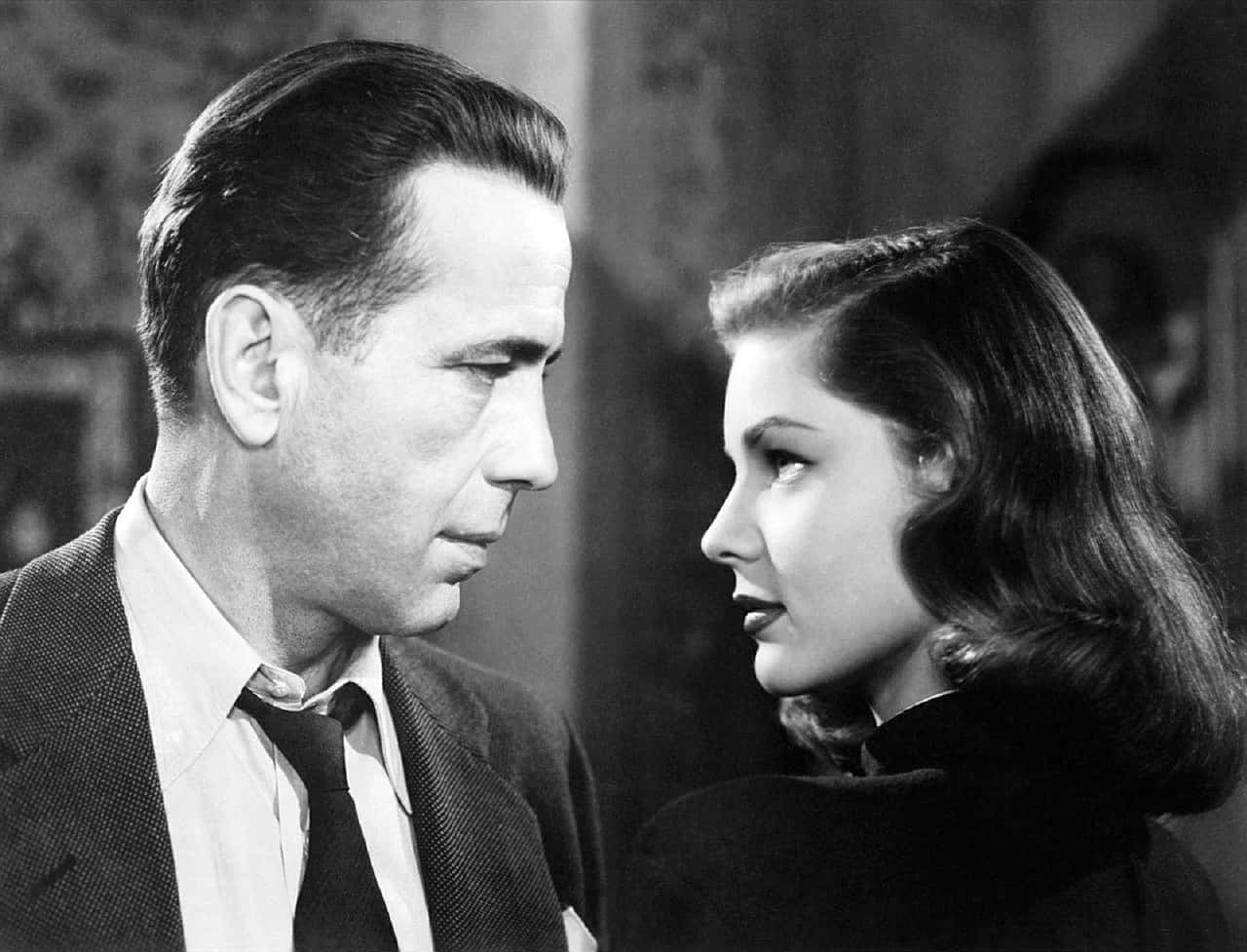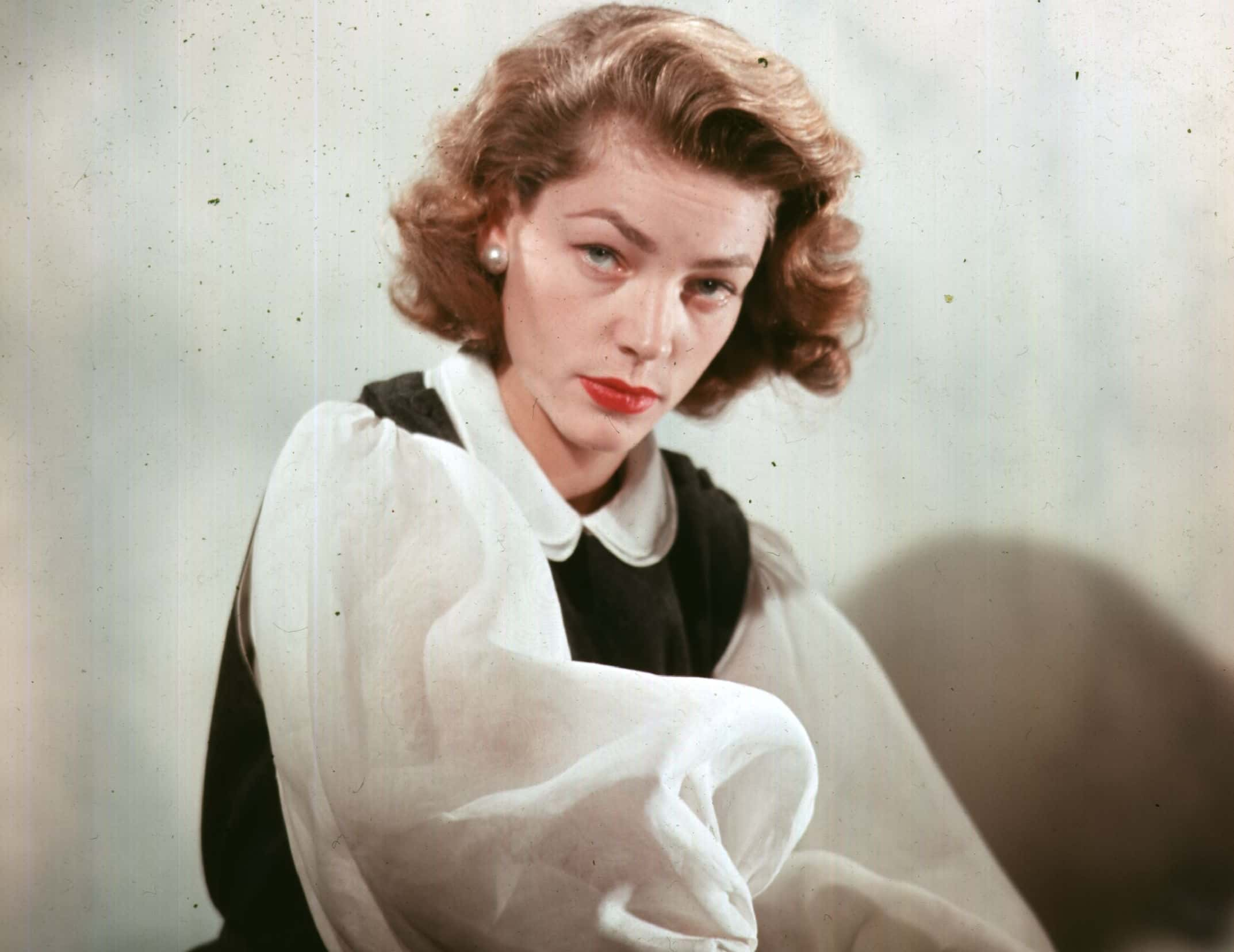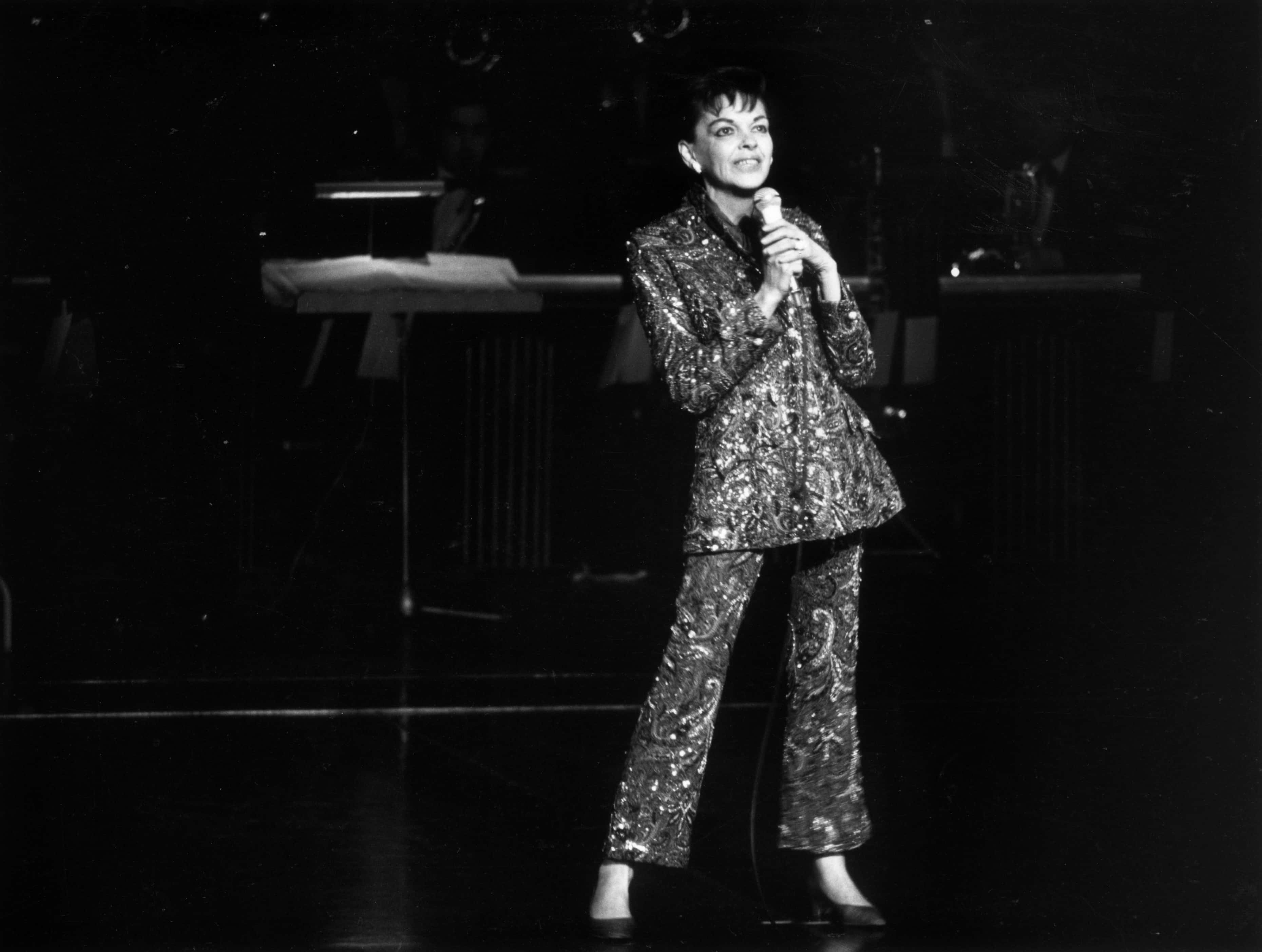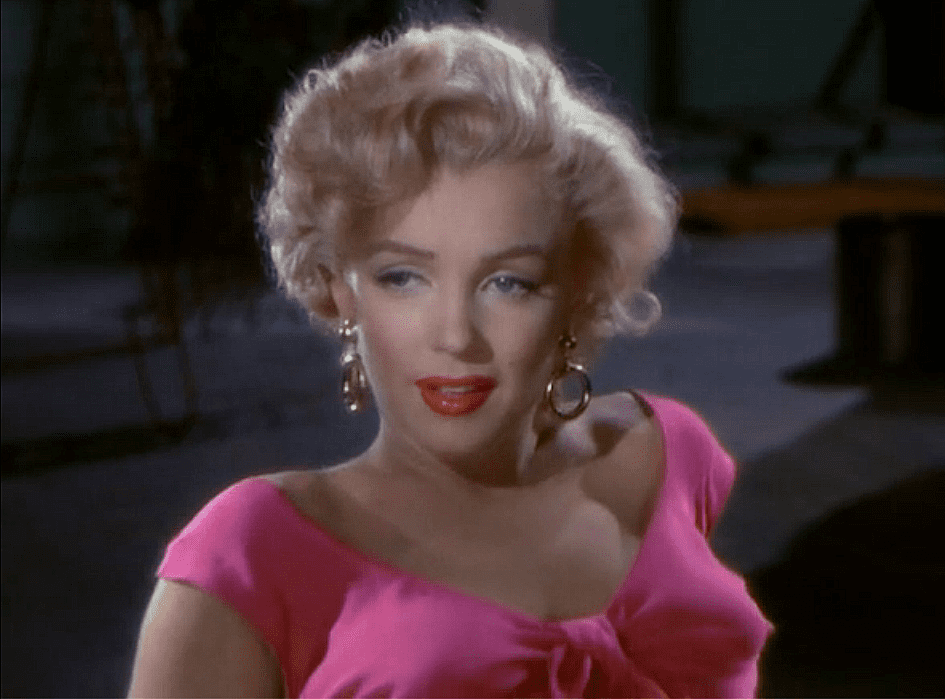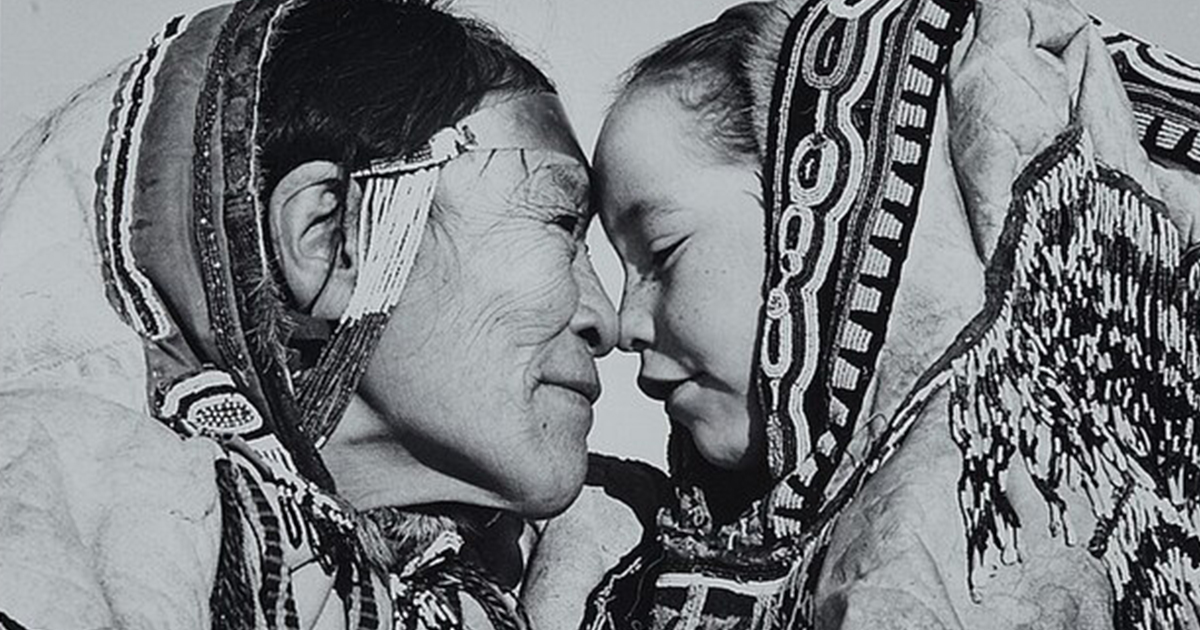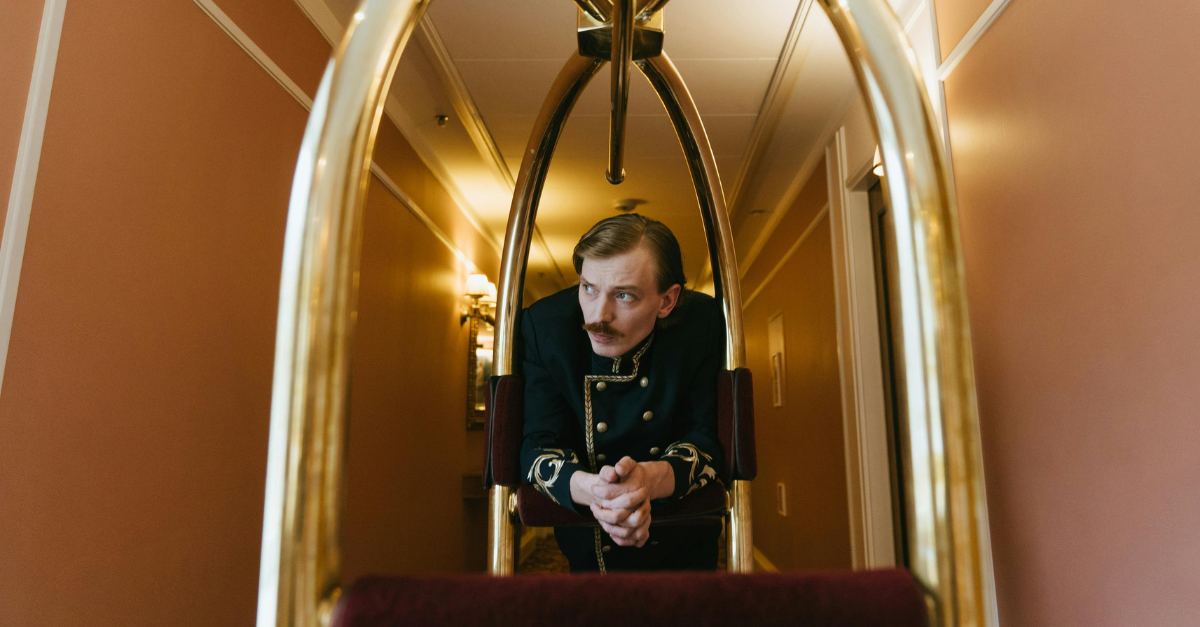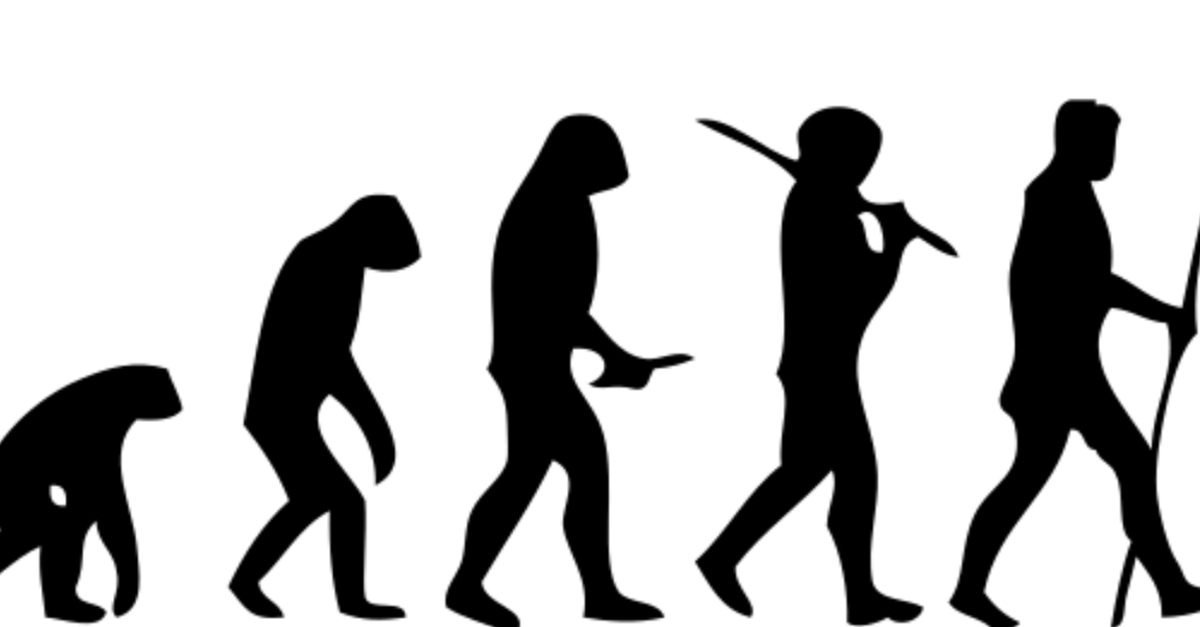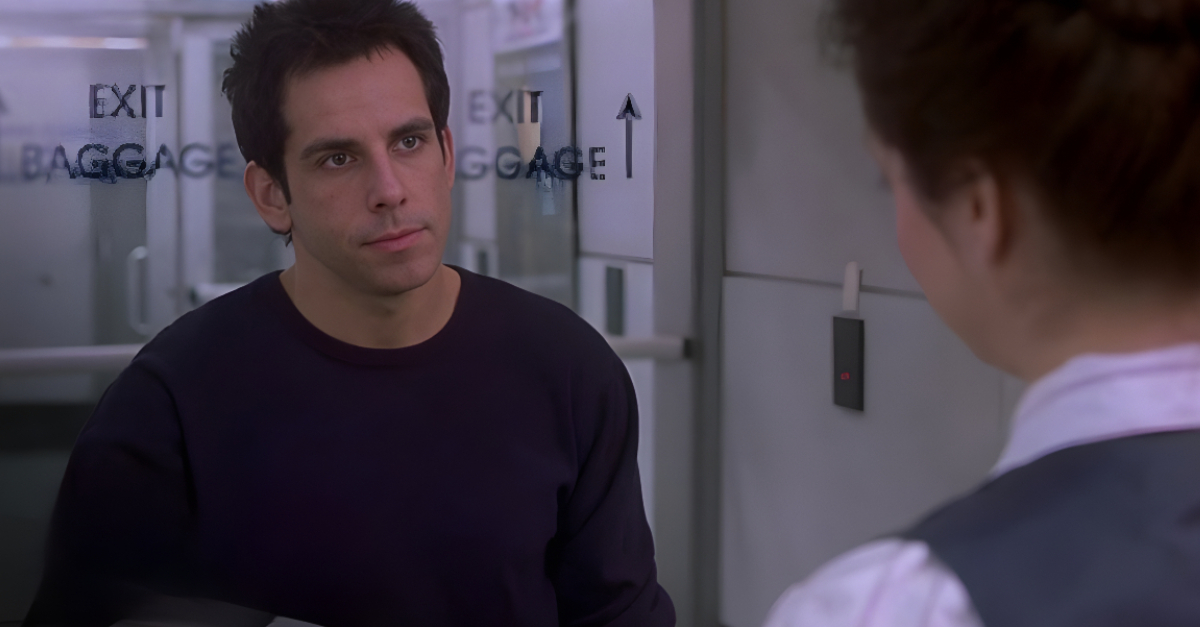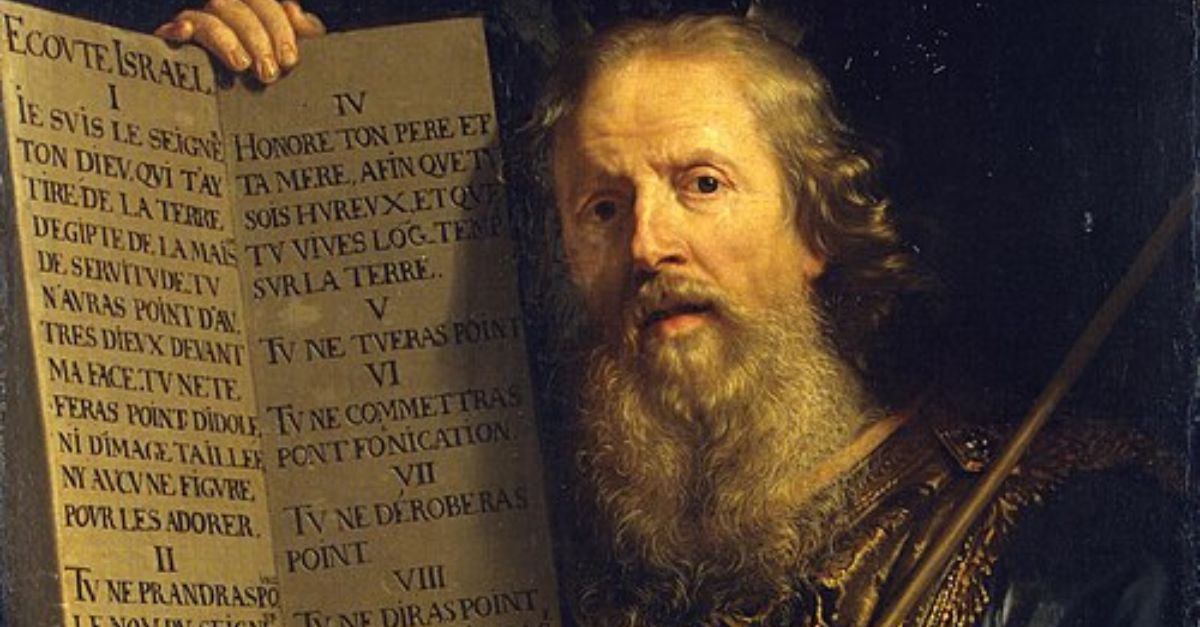“In this business, until you’re known as a monster you’re not a star” —Bette Davis
The movie stars of yesteryear were style icons, western heroes, brooding outsiders, and femme fatales. Some stars burned brightly, some far too briefly, and most of them were no strangers to scandal and strife. From silent beginnings to a veritable Golden Age, let’s take a look at some of the bygone stars of Hollywood’s infancy and indulge in all of their glitz, glamour, and everything in between.
1. Shackled to Studios
Most actors worked under long-term contract for studios. Studios exerted control over the stars and their career prospects in this way, determining which films they could and could not star in, and loaning them to other studios at their whim. A good example: Gary Cooper was producer David O. Selznick’s first choice for the part of Rhett Butler in Gone with the Wind, but Cooper was under contract with Goldwyn Studios, and Goldwyn was unwilling to lend him to MGM, so Cooper lost out.
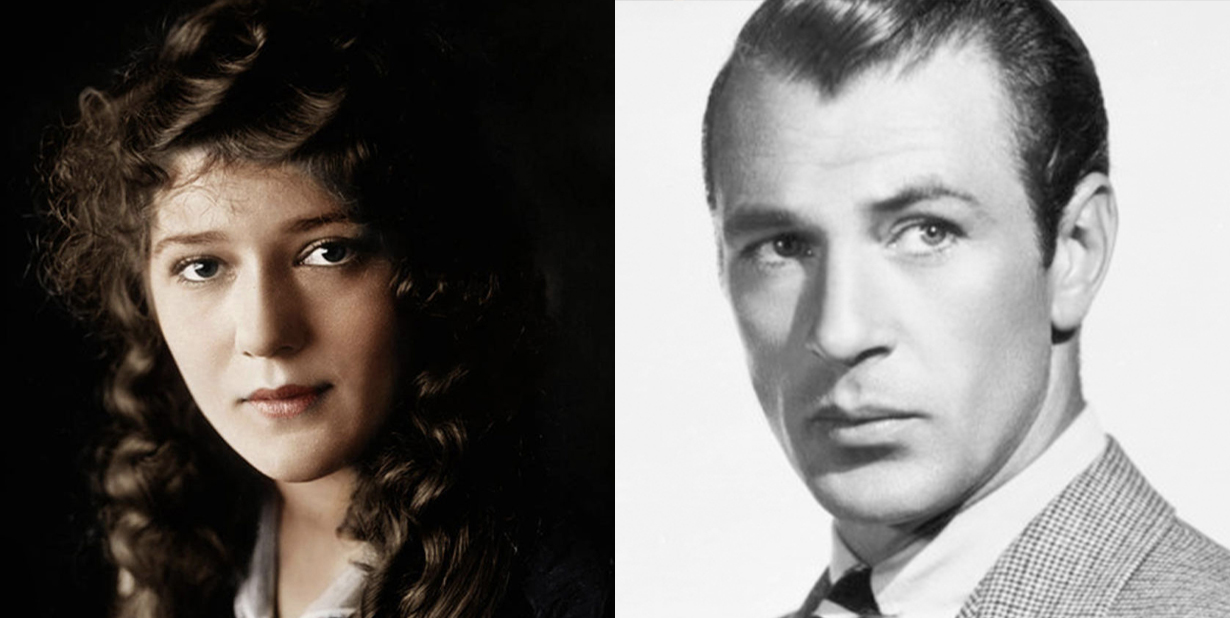
2. Valentino’s Vaselinos
Nicknamed the “Latin Lover,” the seductive Rudolph Valentino was one of the silver screen’s earliest male heartthrobs and style icons. Men who imitated his heavily-pomaded hairstyle and adopted his general demeanour were not-so-affectionately referred to as “Vaselinos".
3. I Challenge You to a Duel
Some were offended (or threatened) by Valentino’s less-mainstream brand of masculinity, and decried its influence on the men of Hollywood and beyond. After taking particular issue with one unnamed journalist’s scathing indictment of him in the Chicago Tribune, Valentino wrote to the paper, challenging the writer to a boxing match.
4. The Girl With the Curls
Canadian-born Mary Pickford,, “the girl with the curls," was one of the first bonafide Hollywood movie stars. She made a record-breaking $10,000 a week at the peak of her popularity.
5. Cast of Crazies
Pickford, along with D.W. Griffith, Charlie Chaplin, and Douglas Fairbanks, formed the United Artists studio in 1919. The studio was intended to protect their work, and to wrest control from commercially minded producers and distributors. This event is said to have given rise to the saying “the lunatics have taken over the asylum,” remarked by Richard A. Rowland, then head of Metro Pictures.
6. Garbo Talks!
Swedish-born Greta Garbo didn’t know any English when she came to America in 1925. Although she eventually learned the language, MGM executives were hesitant to transition her from silent films to talkies. They needn’t have worried, as her first sound film, 1930's Anna Christie, was a huge success and earned Garbo a Best Actress Academy Award nomination. The film was publicized with the tagline "Garbo Talks!” Her sizzling first line was “Gimme a booze, ginger ale on the side, and don't be stingy, baby!”
7. Privacy Please
Notoriously enigmatic and fiercely private, Garbo rarely gave interviews, avoided industry social functions, and never signed autographs or answered fan mail. Nor did she ever appear at Oscar ceremonies, even when she was nominated. She had said that her desire for privacy began when she was a child: "as early as I can remember, I have wanted to be alone. I detest crowds, don't like many people".
8. The Swedish Sphinx
Garbo’s aversion to publicity and her reclusive nature bolstered the aura of mystery surrounding her, and reinforced the intrigue of her on-screen persona. MGM eventually played up to it, and Garbo was regularly referred to as the “Swedish Sphinx” in the press.
9. An Unlikely Star
Bela Lugosi, an Austro-Hungarian immigrant who became a household name after the release of 1931’s smash-hit Dracula, used to learn his lines phonetically for his earlier roles.
10. Bela’s Biggest Blunder
Lugosi missed out on the chance to bring another horror icon to life shortly after his iconic turn as the Count. Following the success of Dracula, Universal green-lit a new adaptation of Mary Shelley’s Frankenstein and offered Lugosi the lead role. Lugosi turned it down, put off by the scarcity of lines and the layers of thick make-up that the part demanded. Boris Karloff, the little-known English actor who ultimately took up the monster’s mantle, arguable became a bigger star than Lugosi because of the film.
11. Better Late Than Never
Despite turning down the role more than a decade earlier, moviegoers eventually did get to see Lugosi play that lumbering, grunting monstrosity in the 1943 Frankenstein Meets the Wolf Man.
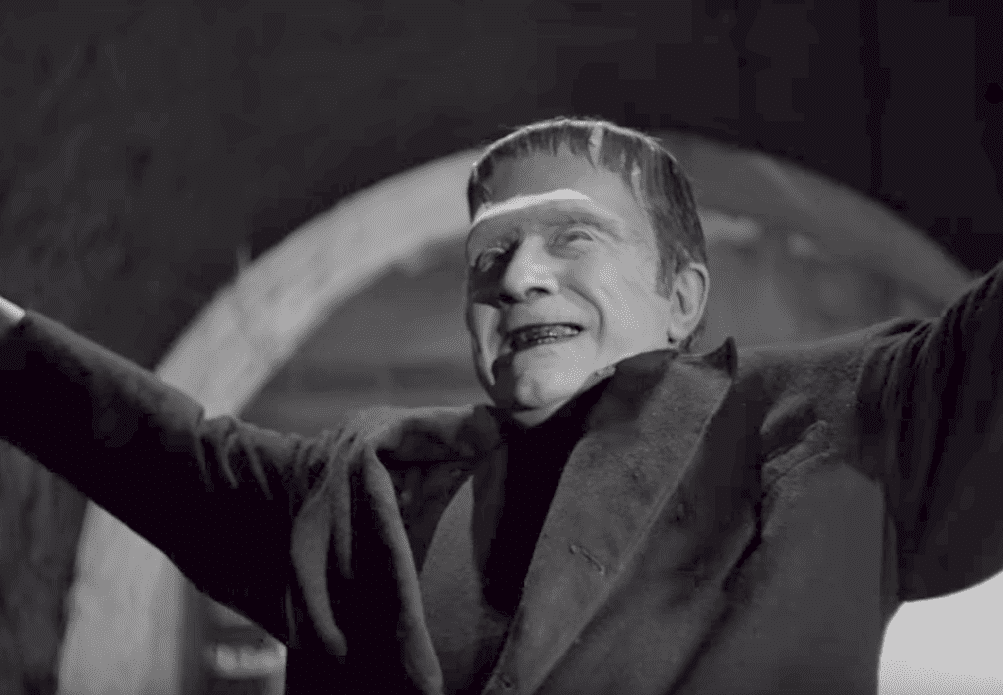 Frankenstein Meets the Wolf Man (1943), Universal Pictures
Frankenstein Meets the Wolf Man (1943), Universal Pictures
12. Monster Clash
Lugosi and Karloff were often made out to be embittered rivals, but this wasn’t really the case. They co-starred in five films together, and their relationship was quite cordial.
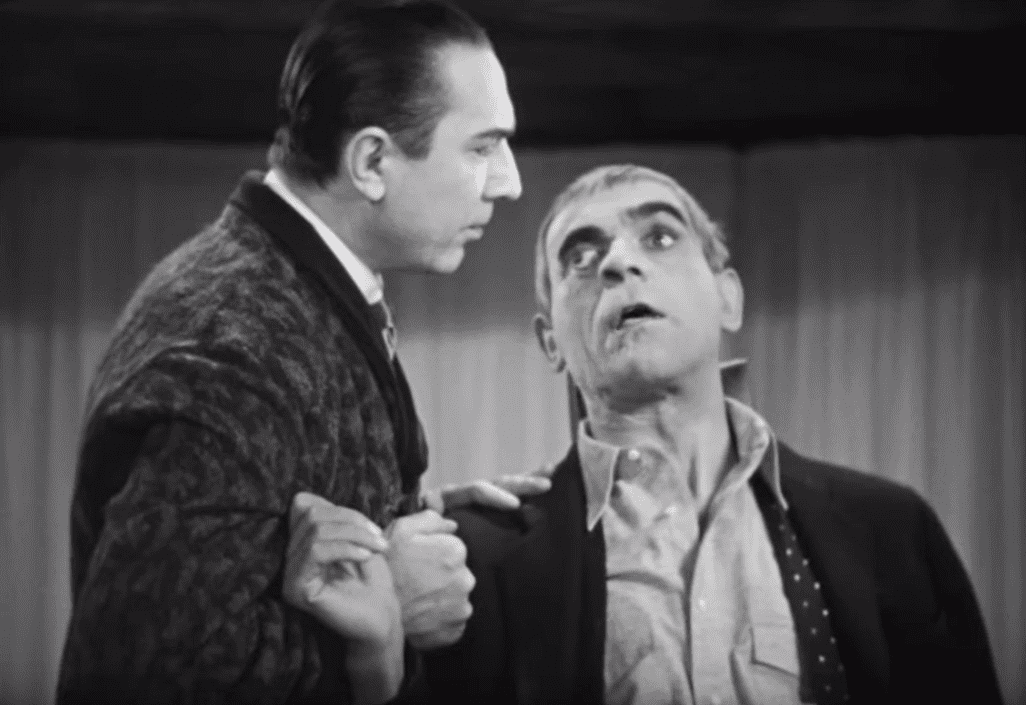 The Raven (1935), Universal Pictures
The Raven (1935), Universal Pictures
13. Remember Me as I Was
Although he came to resent the years of typecasting that his breakout performance in Dracula would instigate, Lugosi was buried wearing the Count’s iconic cape.
14. Proud Founder
Boris Karloff was one of the founders of the Screen Actors Guild, and realized how important safe working conditions were for actors after enduring hours of taxing make-up work for Frankenstein.
15. Look the Part, and We’ll Take Care of the Rest
Appearance and camera presence meant everything in Hollywood at this time; everything else was a secondary concern. “A star is made, created; carefully and cold-bloodedly built up from nothing,” said Louis B. Mayer. “All I ever looked for was a face. If someone looked good to me, I'd have him tested. If a person looked good on film, if he photographed well, we could do the rest".
16. Movie Maverick
Cary Grant was supposedly the first star to break away from the studio system and essentially go independent when he decided not to renew his contract with Paramount in 1936. This allowed him a far greater measure of freedom and control over his career than his peers.
17. Mannix’ll Fix it
An infamous studio “fixer” who worked for MGM, Eddie Mannix covered up countless scandals and misdemeanours and got stars out of trouble by whatever means necessary. When he wasn’t getting unruly stars out of penal institution, paying off victims of assault or car accidents, or arranging abortions, he was calling in actual gangsters to adopt a firmer approach. One of his more infamous fixes supposedly had him tracking down and buying the film negative of a pornographic film made by Joan Crawford before she became famous.
18. The Role of a Lifetime
The screen tests for the role of Scarlett O’Hara in Gone with the Wind were, to say the least, intensive. Over 1,400 unknown actresses were interviewed in a nationwide casting call, and dozens of famous stars auditioned for the part, including Katharine Hepburn, Loretta Young, Helen Hayes, Lana Turner, and Lucille Ball. 149,000 feet of black-and-white film and 13,000 feet of technicolor were shot for the tests.
19. Barred by Bigots
Gone with the Wind premiered at Loew's Grand Theater in Atlanta, Georgia on December 15, 1939. Producer David O. Selznick wanted to bring African-American actress Hattie McDaniel (who played Mammy) along to the premiere, but MGM advised him not to on account of Georgia's segregation laws at the time. Clark Gable, McDaniel’s co-star, was outraged, and threatened to boycott the premiere unless she were permitted to attend. McDaniel convinced him to attend anyway, and the premiere went ahead without her. She went on to become the first African-American Oscar winner for her role in the film, winning Best Supporting Actress.
20. An Affair to Remember
Katharine Hepburn’s relationship with Spencer Tracy is one of Hollywood’s most legendary love affairs. They had a relationship for 27 years until Tracy’s demise in 1967. Tracy was an unhappily married father of two when they met, but he never pursued a divorce and remained married throughout the whole affair. They made a total of nine films together.
21. Oscars Shmoscars
Despite winning four Oscars and being nominated for eight more, Katharine Hepburn never attended an Academy Awards ceremony as a nominee. She appeared at the ceremony only once, to present the Irving Thalberg Award to Lawrence Weingarten in 1974. After a standing ovation she told the crowd "I'm living proof that a person can wait forty-one years to be unselfish".
22. National Hero
German-born Marlene Dietrich was asked to return to Germany by associates of Adolf H. to make films there in the late 1930s. A staunch opponent of the Third Reich government, Dietrich refused. She became an official US citizen in 1939. For entertaining US army in WWII and for her stand against Naziism in general, Dietrich received the Presidential Medal of Freedom in 1947.
23. Protect Those Pipes
Marlene Dietrich’s voice was unique, iconic, and probably her most defining and valuable feature. She was no doubt aware of this; she insured her voice for $1 million.
24. Stalin Wanted the Duke Gone
Joseph Stalin once sent Soviet agents to assassinate western star John Wayne. Stalin was outraged over the anti-communist sentiments expressed by the Duke. Wayne was informed of the planned liquidation ahead of time, and apparently hatched a plot with screenwriter and friend Jimmy Grant to abduct the assassins and stage a mock execution at a beach to frighten them. Luckily, none of this came to pass.
25. Cary Grant: Match-maker
Cary Grant introduced Rosalind Russell (his co-star in the Howard Hawks' classic His Girl Friday) to her future husband, Danish-American producer Frederick Brisson, and ended up being the best man at their wedding the next year.
26. Fred and Ginger
One of the silver screen’s most iconic and dazzling pairs, Fred Astaire and Ginger Rogers appeared in 10 films together between 1933 and 1949. The first was Flying Down To Rio, in which the two had minor roles, and the last was The Barkleys of Broadway, which was both their only film together released outside of RKO, and the only one shot in Technicolor.
27. Valuable Stems
Fred Astaire wasn’t playing around. He insured both of his legs for $75,000, and his arms for $20,000.
28. First Impressions Aren’t Everything
Things didn’t get off to a flying start for Fred Astaire. RKO’s initial screen test report for the eventual star in the 1930s was said to have read: “Can’t act. Slightly bald. Can dance a little".
29. Old Habits
Jimmy Stewart wore the same old reliable hat in all of his Westerns from Winchester ‘73 in 1950 to Two Rode Together in 1961. He also rode the same horse, named Pie, for 17 westerns in total.
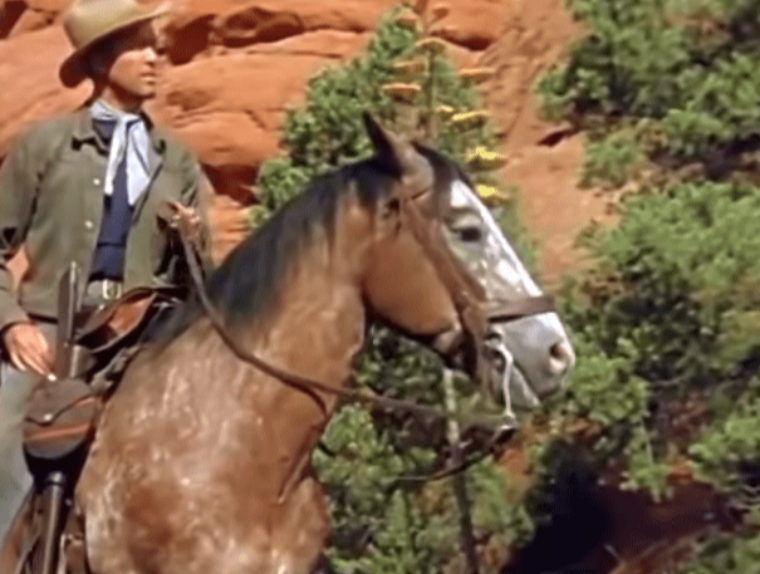 Broken Arrow (1950), Twentieth Century Fox
Broken Arrow (1950), Twentieth Century Fox
30. Tragic Trio
All three of the main actors in 1955’s Rebel Without a Cause met tragically untimely deaths. James Dean demise in a car crash, Natalie Wood drowned, and Sal Mineo was spiked to end.
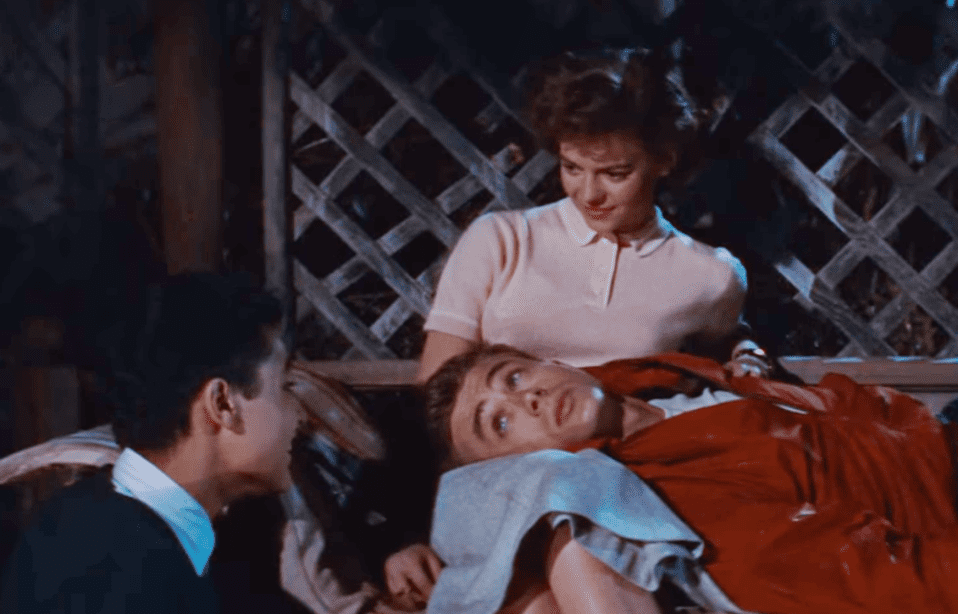 Rebel Without a Cause (1955), Warner Bros
Rebel Without a Cause (1955), Warner Bros
31. Silent Start
Marion Leonard was one of the first celebrities of the early days of the silent film era. She starred in the first film ever made in Hollywood, D.W. Griffith’s In Old California from 1910.
32. Sorry About That
Paul Newman was so ashamed of his debut feature film, 1954’s The Silver Chalice, that he later called it “the worst motion picture produced during the 1950s” and took out a full-page ad in Variety apologizing for the performance.
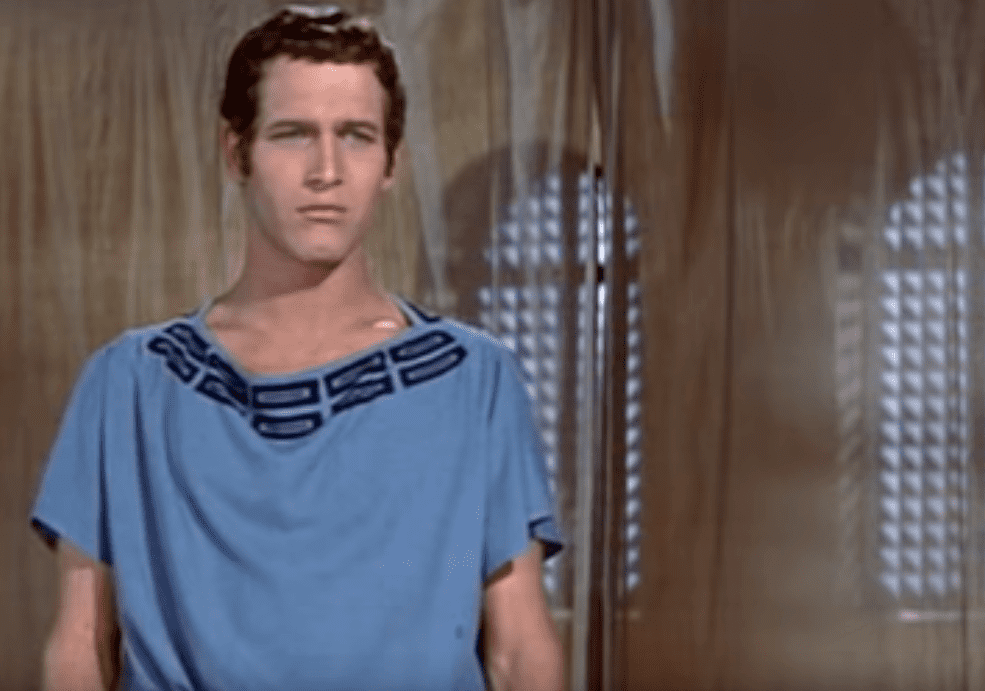 The Silver Chalice(1954), Warner Bros.
The Silver Chalice(1954), Warner Bros.
33. Mistaken for Marlon
Early in his acting career, Newman was often mistaken for Marlon Brando, and he claims to have signed around 500 autographs on Brando’s behalf.
34. Anyone for Seconds?
Guys and Dolls co-stars Marlon Brando and Frank Sinatra did not get along. Sinatra referred to Brando as “mumbles,” and reportedly was not a fan of rehearsals, retakes or “that Method garbage". Brando used Sinatra's aversion to retakes against him during the filming of one scene in particular, in which Sinatra has to eat a piece of cheesecake while Brando talks. Brando intentionally flubbed his last line over and over again, forcing Sinatra to eat a fresh piece of cheesecake each time. Sinatra eventually lost it, screaming "These f**king New York actors! How much cheesecake do you think I can eat?"
35. Clift’s Control
The ferociously talented Montgomery Clift, a posthumous gay icon with an immeasurable degree of talent and intensity, signed with Paramount in 1948 for a three picture deal with the stipulation that he would have script approval. Though relatively common these days, this was unheard of at the time. The deal also stated that he was only to star in films directed by Billy Wilder, George Stevens, or Norman Krasna, and that he was free to work at another studio if he wished.
36. Another Fallen Idol
Montgomery Clift was crippled by personal demons, booze and substance addiction. Even Marilyn Monroe reported that he was “the only person I know who is in even worse shape than I am".
37. Roomies
Marilyn Monroe and Shelley Winters were roommates when they first tried to make it in Hollywood.
38. Before She Was Marilyn...
Monroe was born Norma Jeane Mortenson, and only legally changed her name to Marilyn Monroe in March 1956.
39. A Feud for the Ages
Feuds between stars were common in the old days of Hollywood, and were often encouraged and provoked by studios and the press. One of the most notable and bitter feuds from back in the day was carried out by Joan Crawford and Bette Davis. It reportedly began when Davis was filming Dangerous in 1935; Davis had fallen in love with her co-star Franchot Tone, but Crawford had her eyes on him too. Crawford seduced him, and they were married at the end of that year.
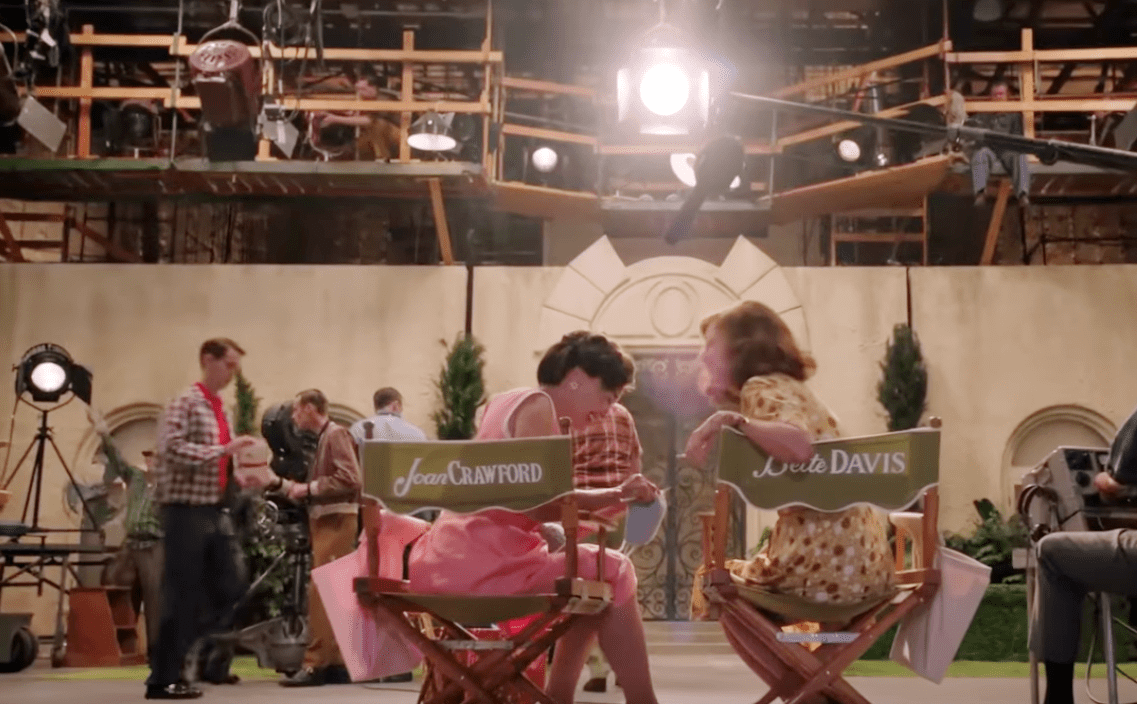 Feud, Fox 21 Television Studios
Feud, Fox 21 Television Studios
40. Fever Pitch
The Crawford-Davis feud came to a head during the making of What Ever Happened to Baby Jane? In 1962. Davis had a Coca-Cola machine installed on the set just to antagonize Crawford, who was the widow of Pepsi’s CEO. Not to be outdone, Crawford enacted her sweet revenge by putting weights in her pockets for a scene that required Davis to drag her body across the floor.
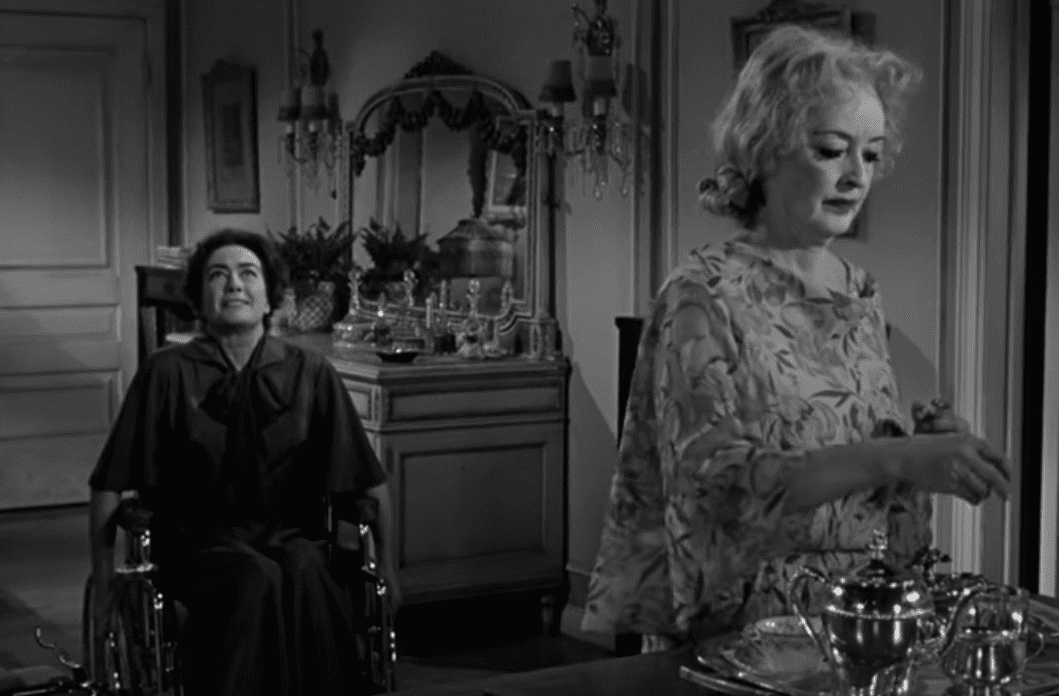 What Ever Happened to Baby Jane?, Warner Bros.
What Ever Happened to Baby Jane?, Warner Bros.
41. Ouch
When Crawford passed in 1977, Davis had this to say about her long-standing rival: "You should never say bad things about the gone, you should only say good. Joan Crawford is gone. Good".
42. The Battling Bogarts
Before marrying Lauren Bacall and becoming one half of one of the most high-profile Hollywood couples of the era, Humphrey Bogart was married to actress Mayo Methot. And it was not a smooth relationship. They both drank heavily and fought regularly, eventually earning the moniker “The Battling Bogarts” in the press. Methot became known as “Sluggy” due to her combative nature, and Bogart would later name his yacht Sluggy in her honor.
43. Bogart, Bacall, and Methot
Bogart fell in love with Bacall on the set of To Have and Have Not, and they began an affair. At 3 am one morning, Bogart called Bacall, saying “I miss you, Baby,” before Methot, who had caught wind of the affair, tore the receiver from his hand and screamed at a terrified Bacall down the line: “Listen, you Jewish b**ch, who’s going to wash his socks?”
44. The Look
Bacall’s trademark facial gesture, known as “The Look,” was actually borne out of nerves on the set of her first film, To Have and Have Not. She kept her chin pressed against her chest to keep from shaking until just before the cameras rolled, which is why she began every shot by bringing her gaze upward.
45. Over the Rainbow
Judy Garland had a close friendship with President John F. Kennedy. They would often have late-night phone conversations and Kennedy would insist that she sing a few bars of her signature number from The Wizard of Oz, “Over the Rainbow,” before she hung up.
46. Last Words
Right before she passed from a tragic pill overuse, Marilyn Monroe had a final desperate phone call to a friend. Just as she began to drift, her last words were, "Say goodbye to Pat, say goodbye to the president, and say goodbye to yourself, because you're a nice guy". She was talking to actor Peter Lawford, who was married to Patricia Kennedy and was brother-in-law to sitting President John F. Kennedy.
Sources: 1, 2, 3, 4, 5, 6, 7, 8, 9, 10, 11, 12, 13, 14, 15, 16, 17, 18, 19, 20, 21, 22, 23, 24, 25, 26, 27, 28, 29, 30, 31, 32, 33, 34, 35, 36, 37, 38, 39, 40, 41, 42, 43, 44, 45, 46, 47, 48, 49, 50, 51, 52, 53, 54, 55, 56, 57, 58, 59, 60, 61, 62

